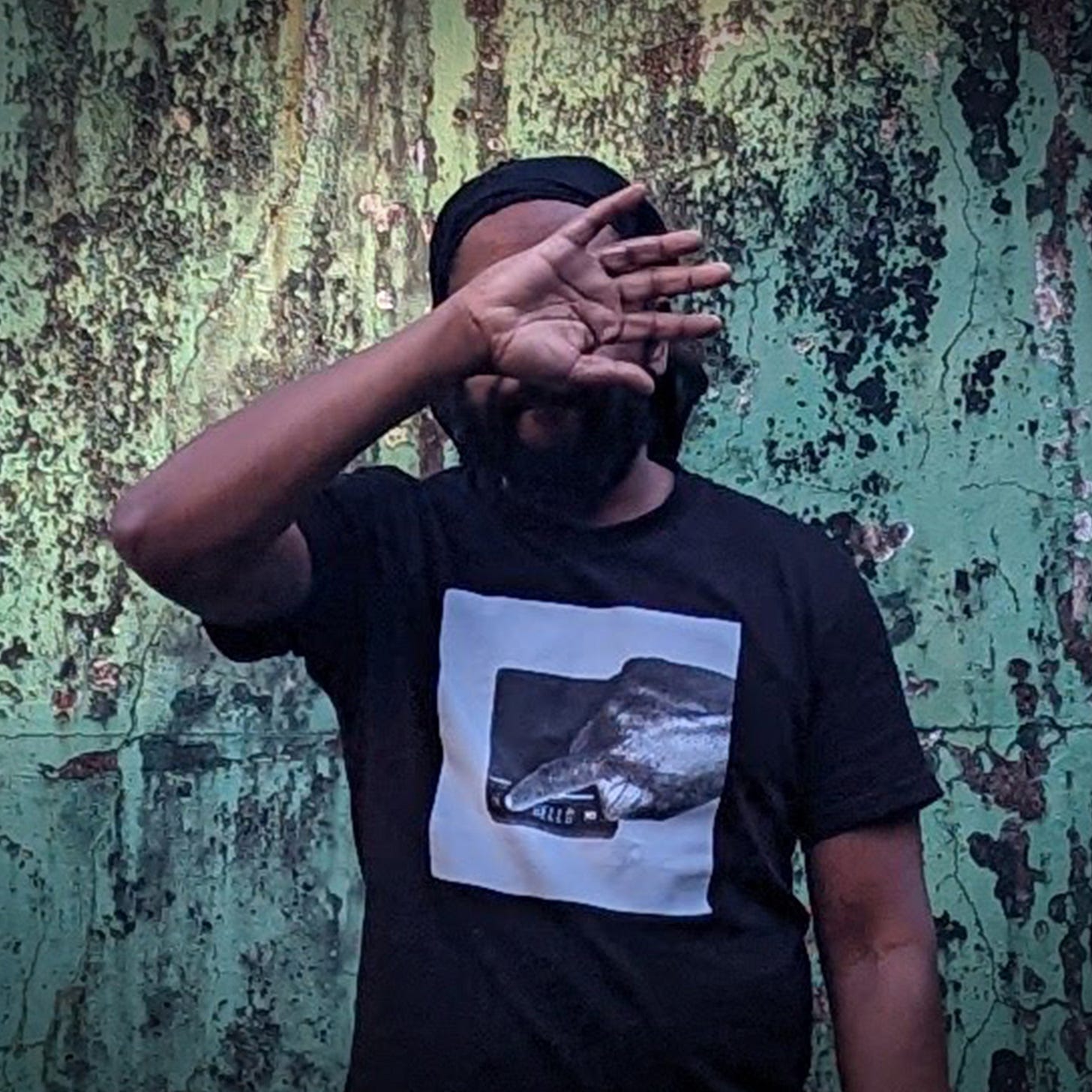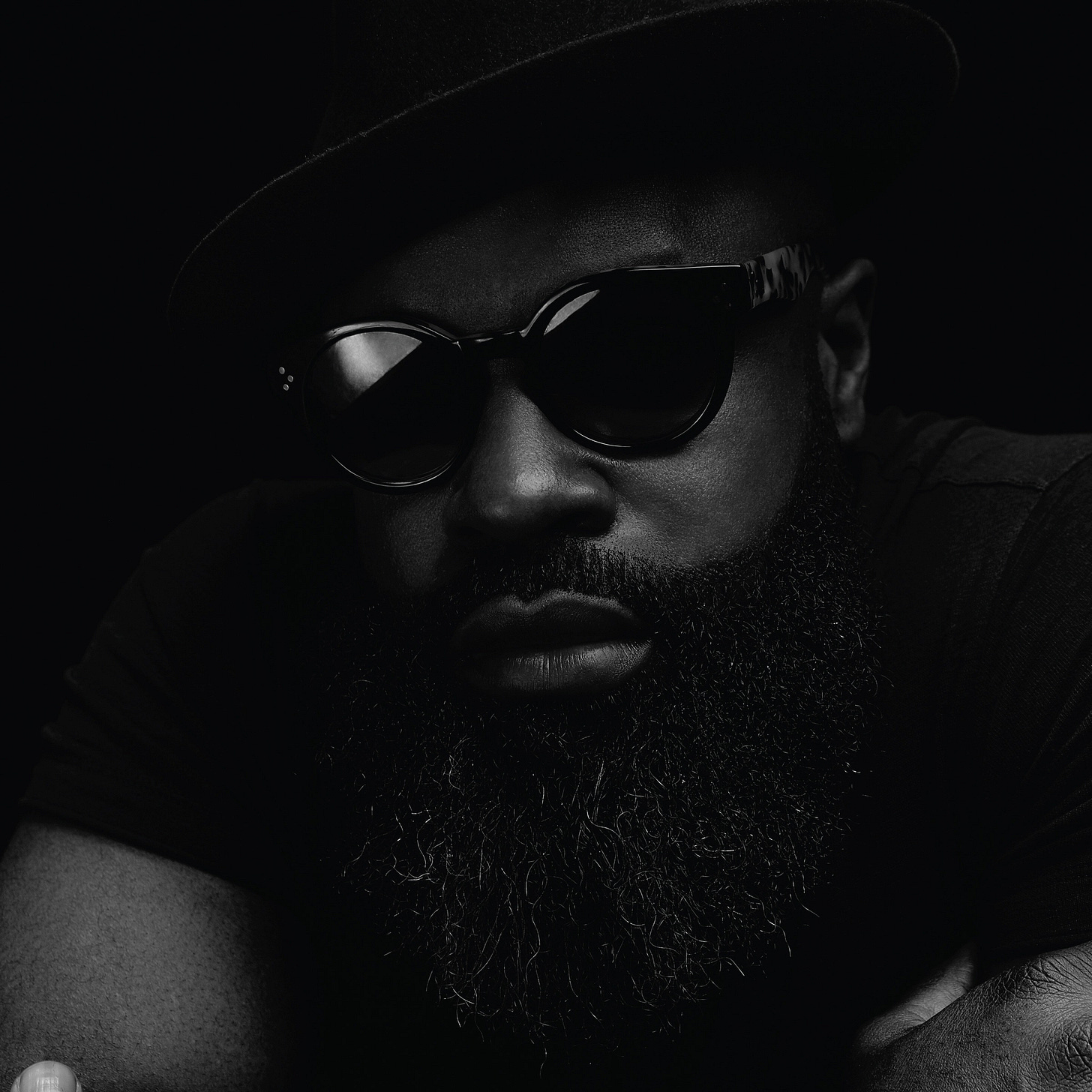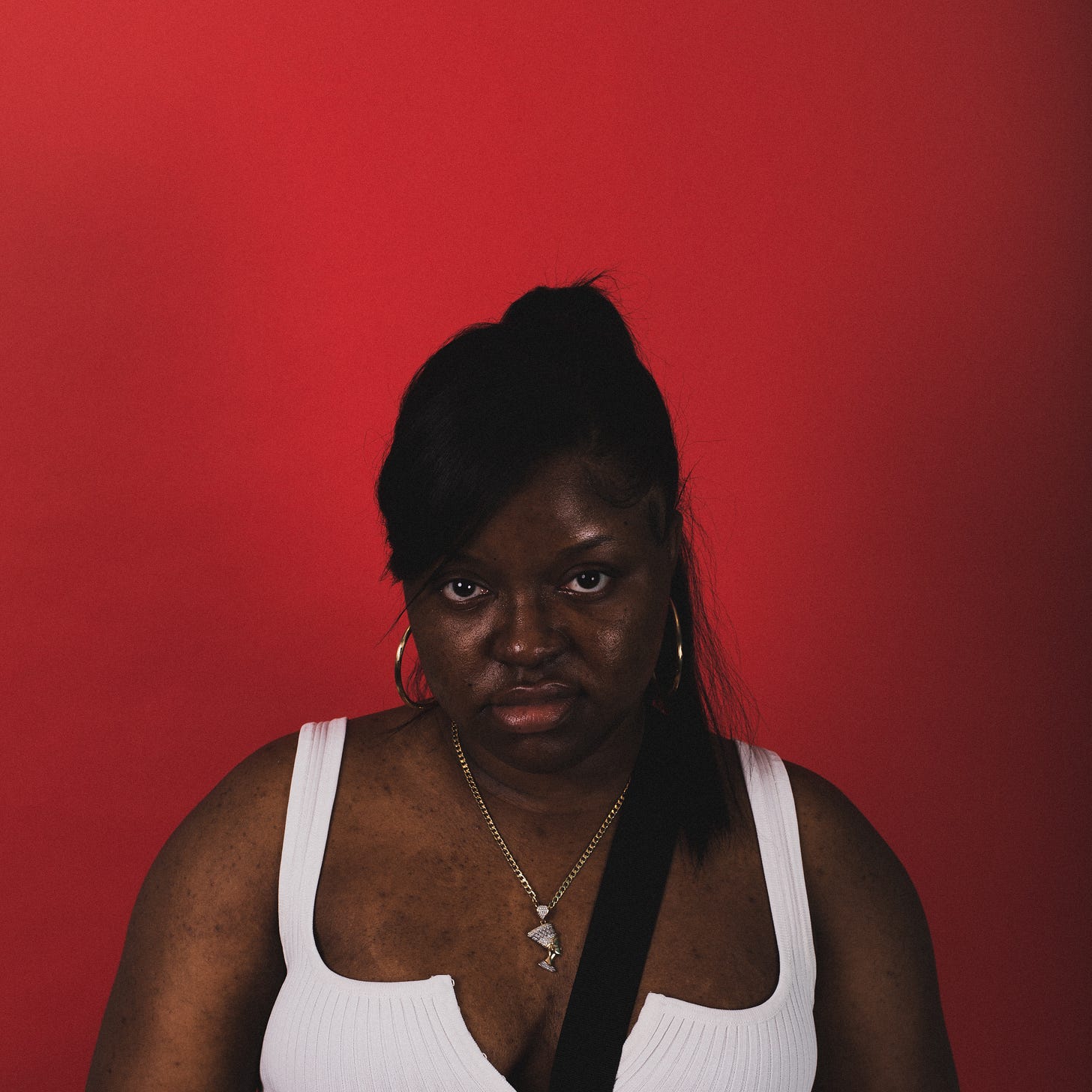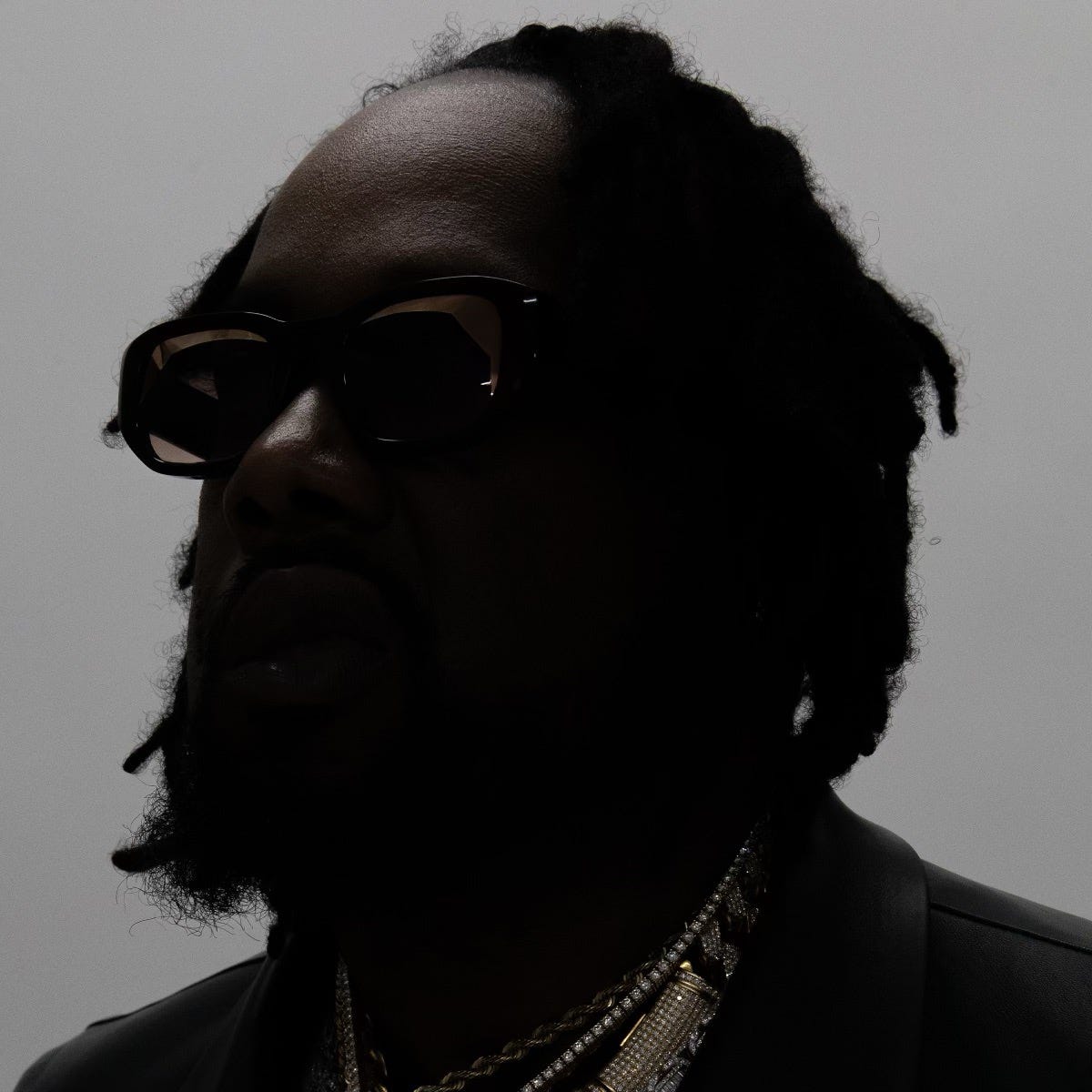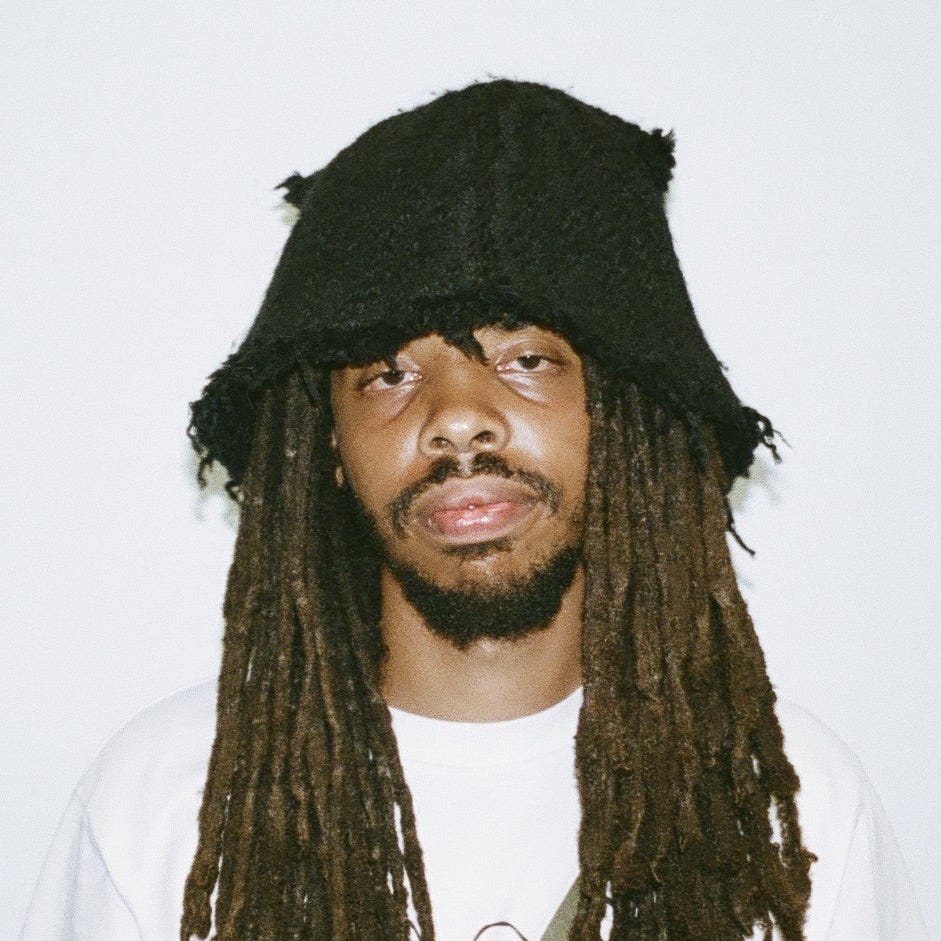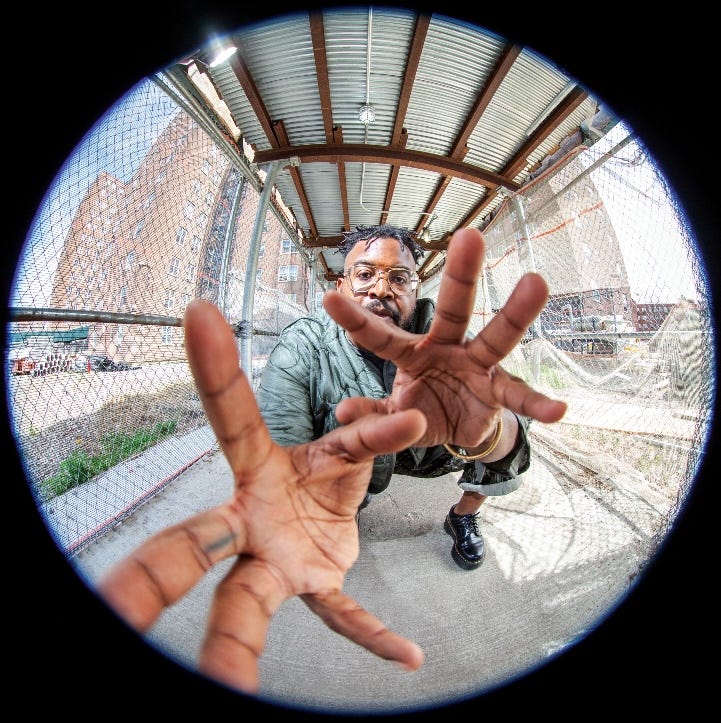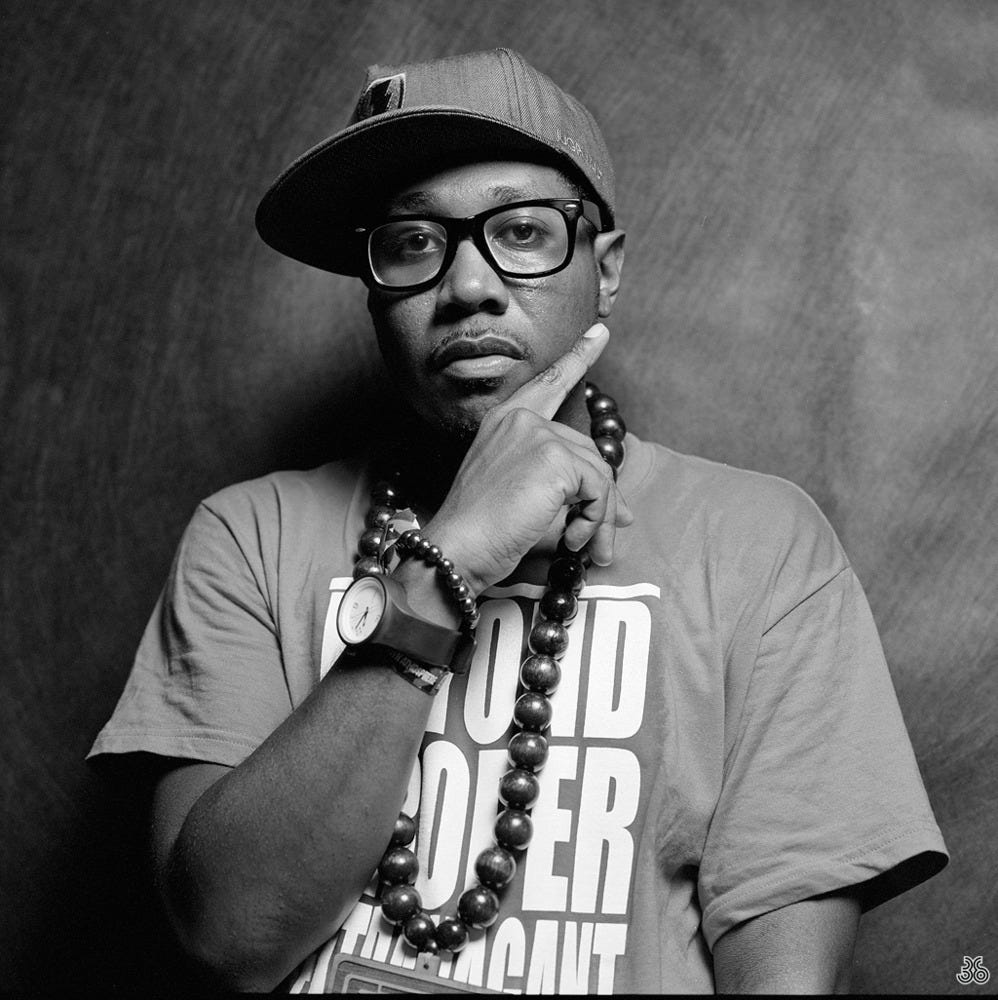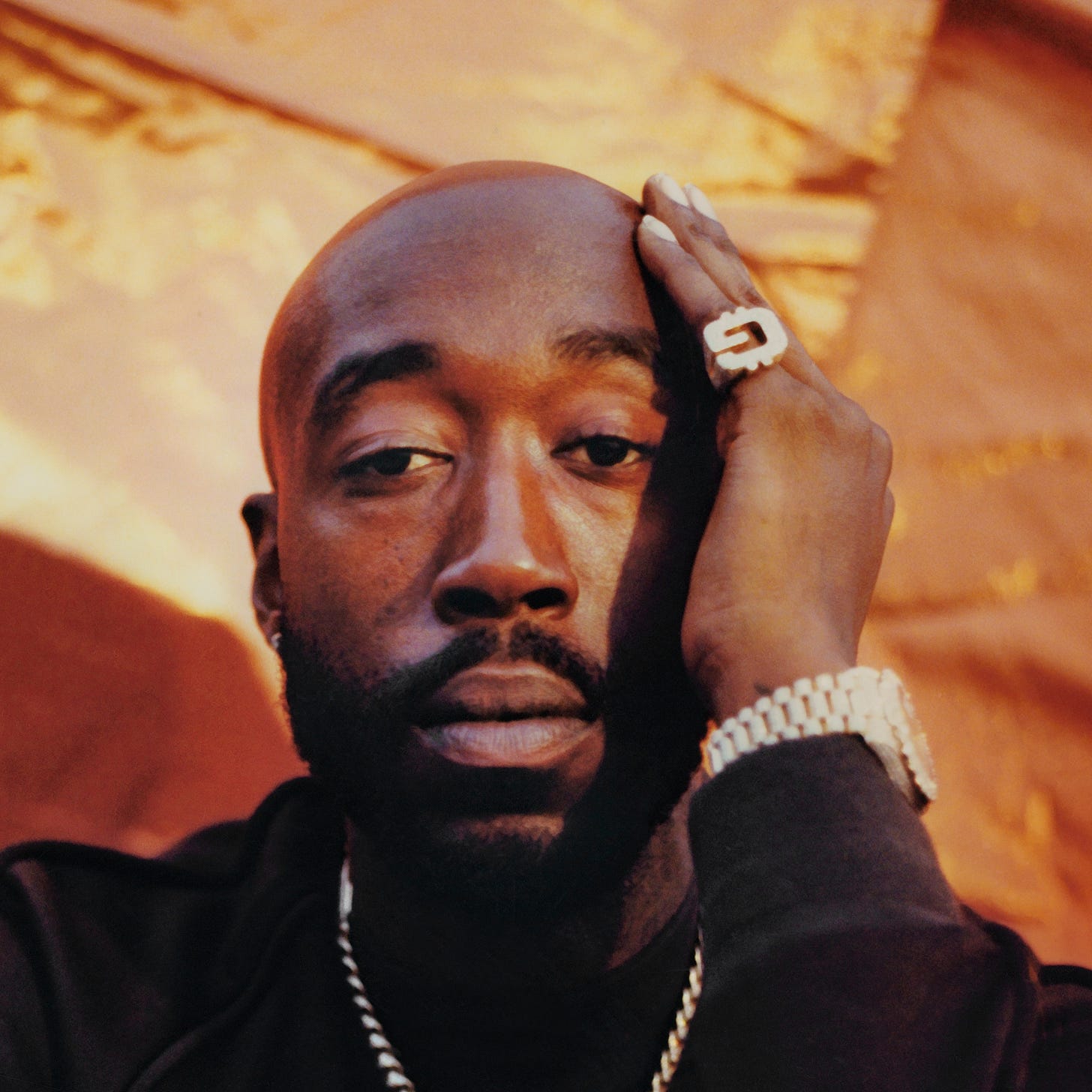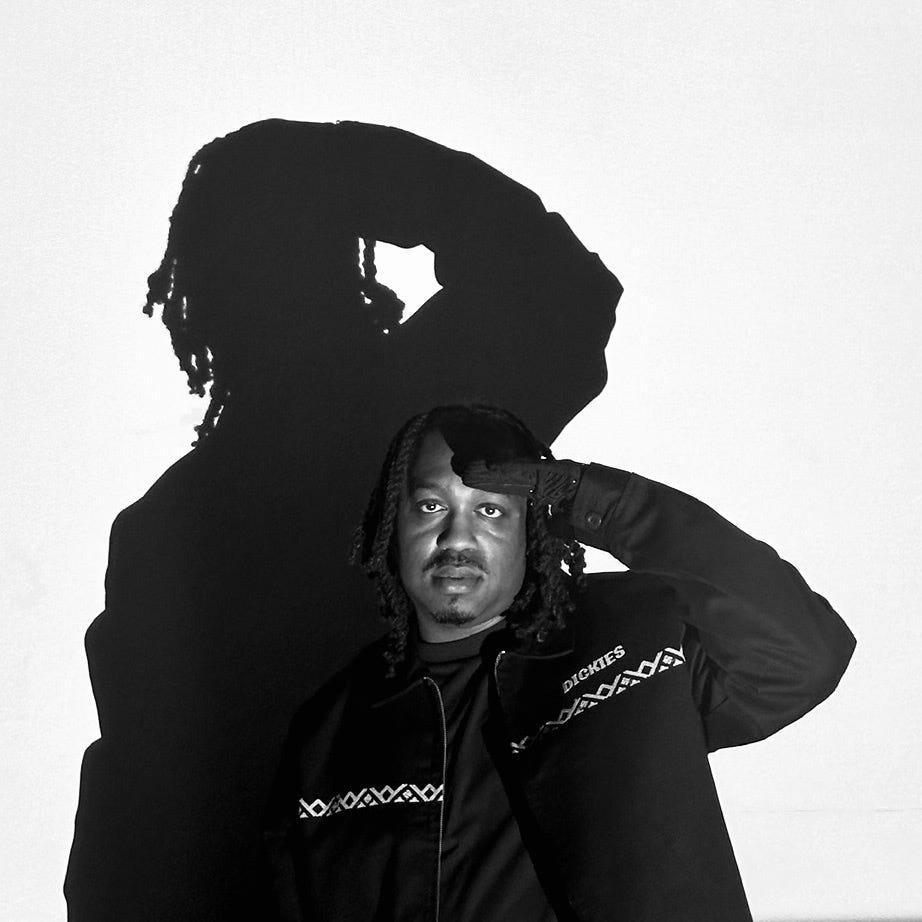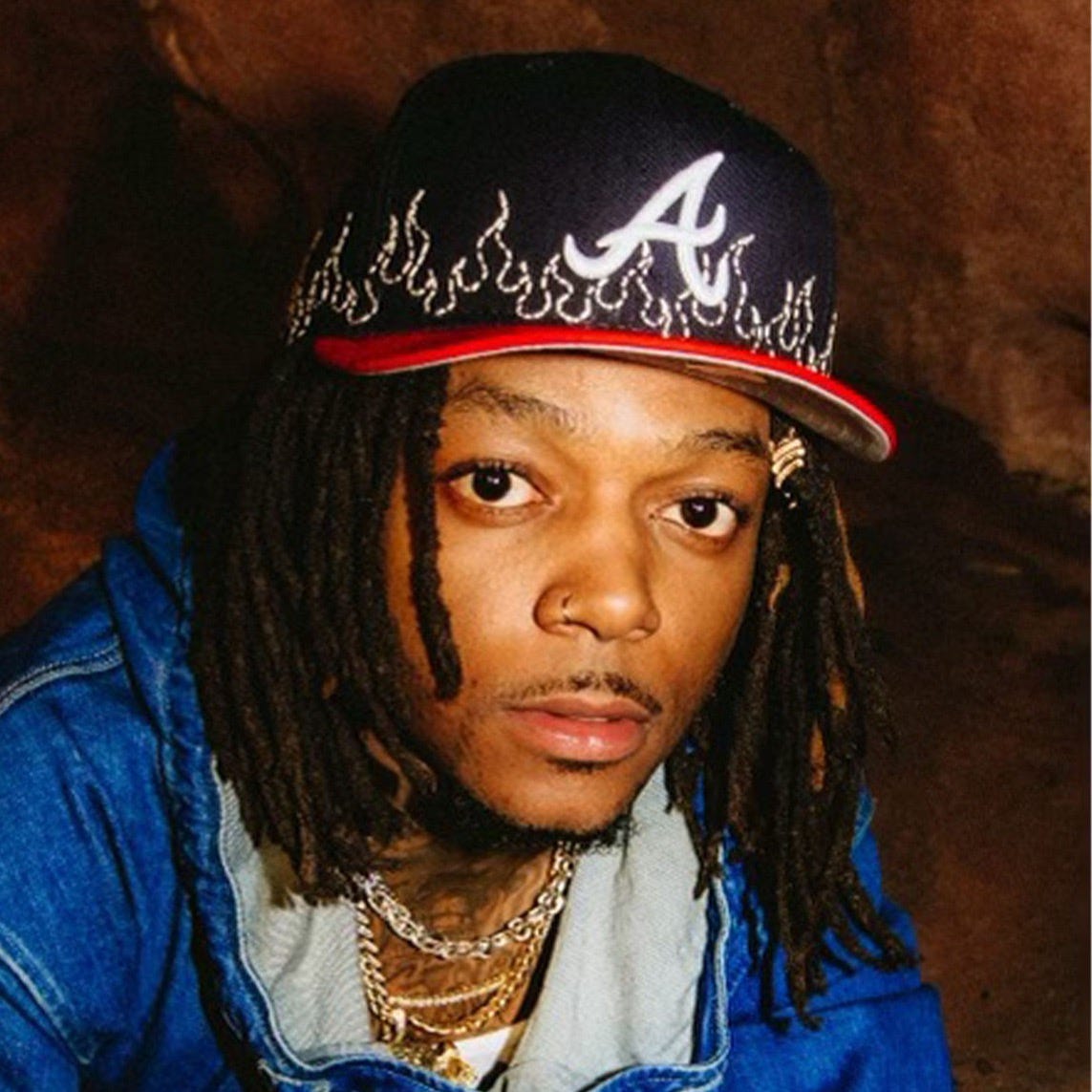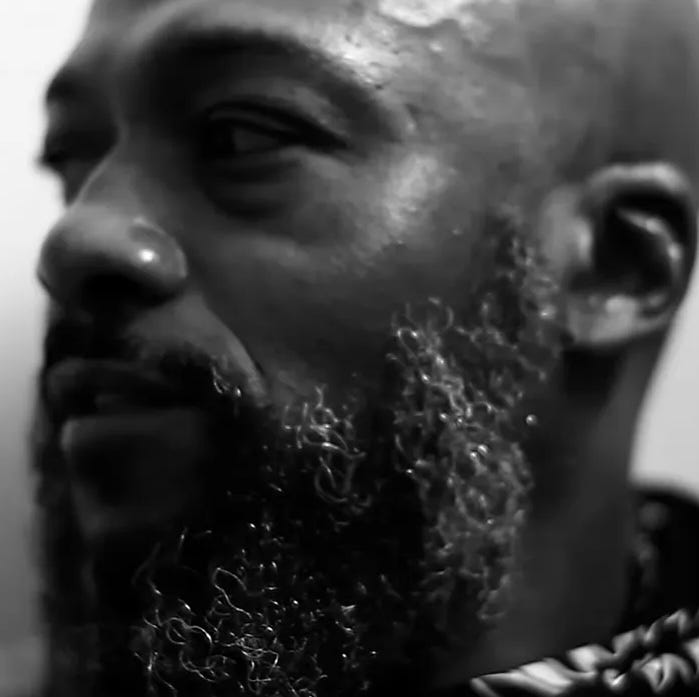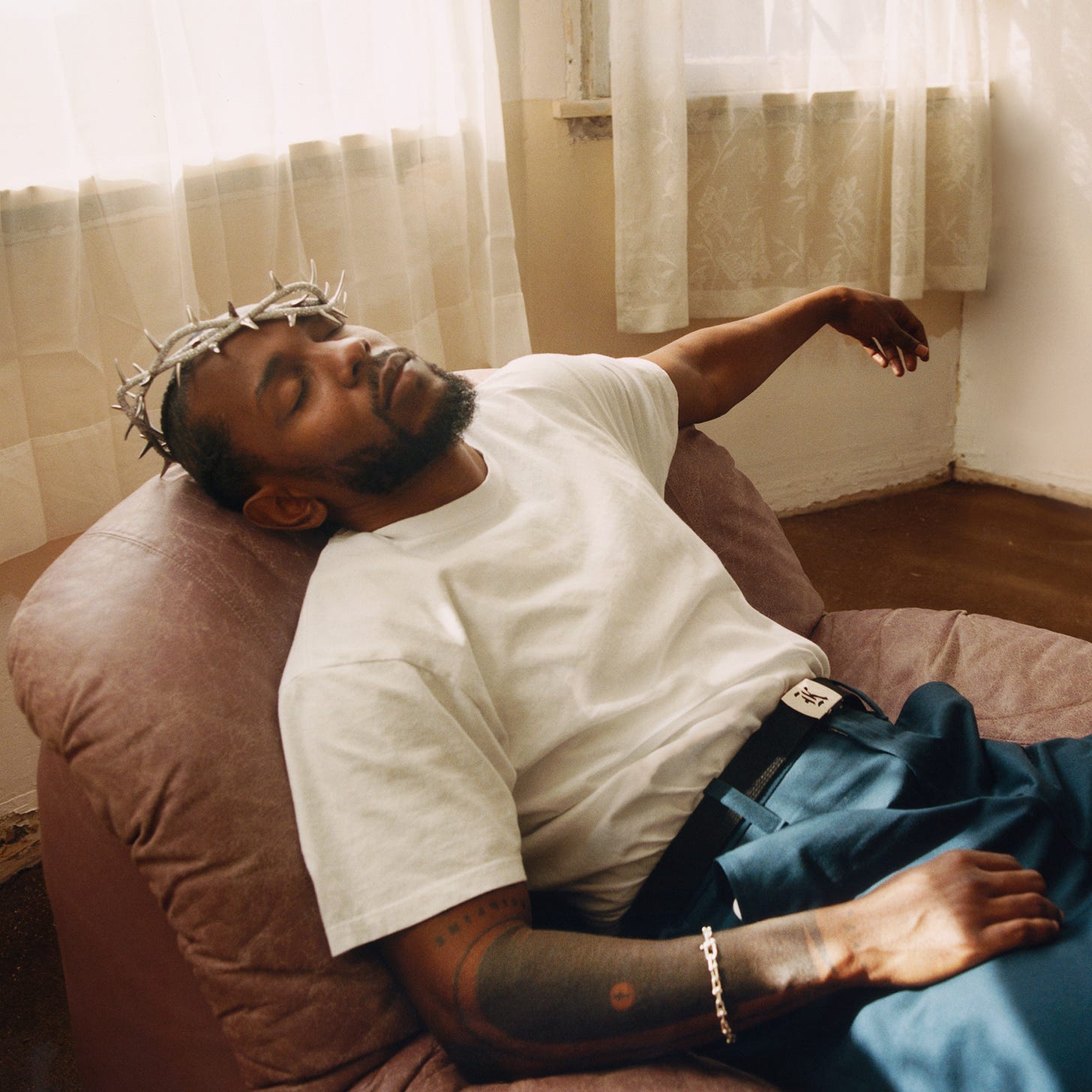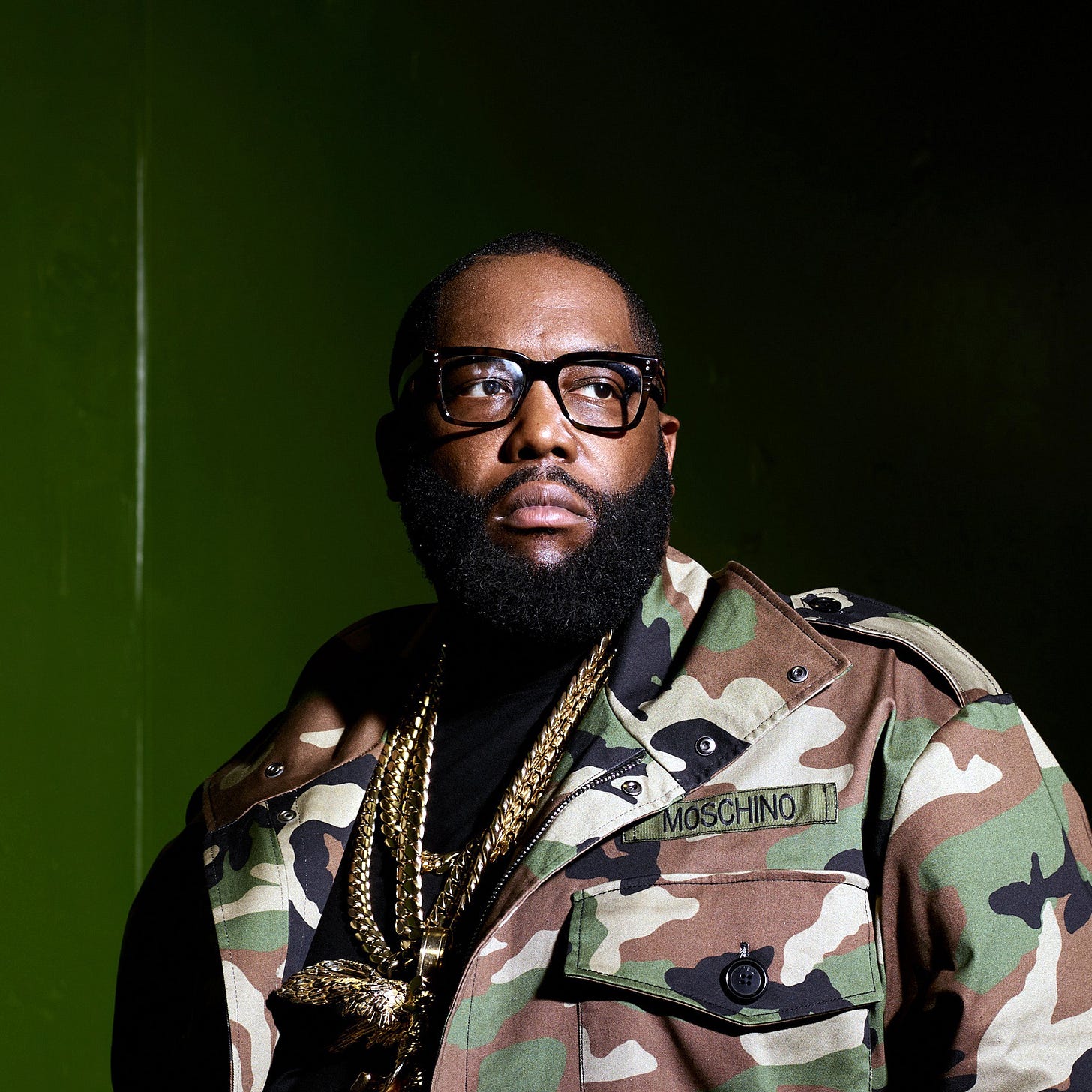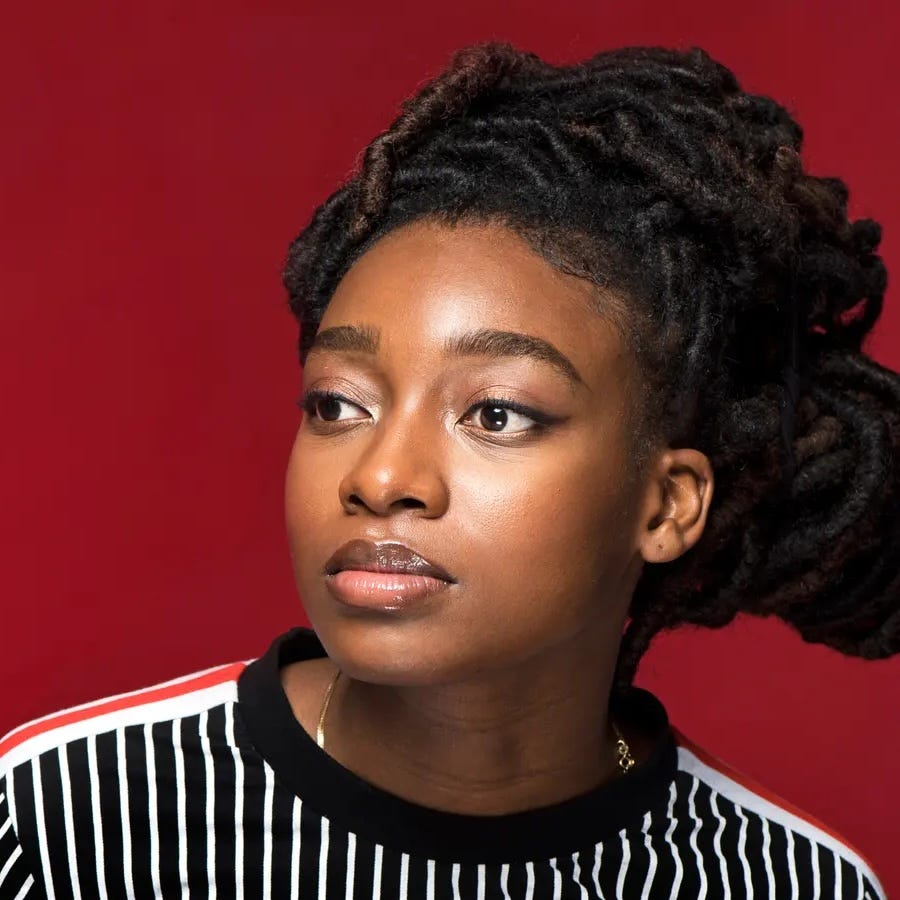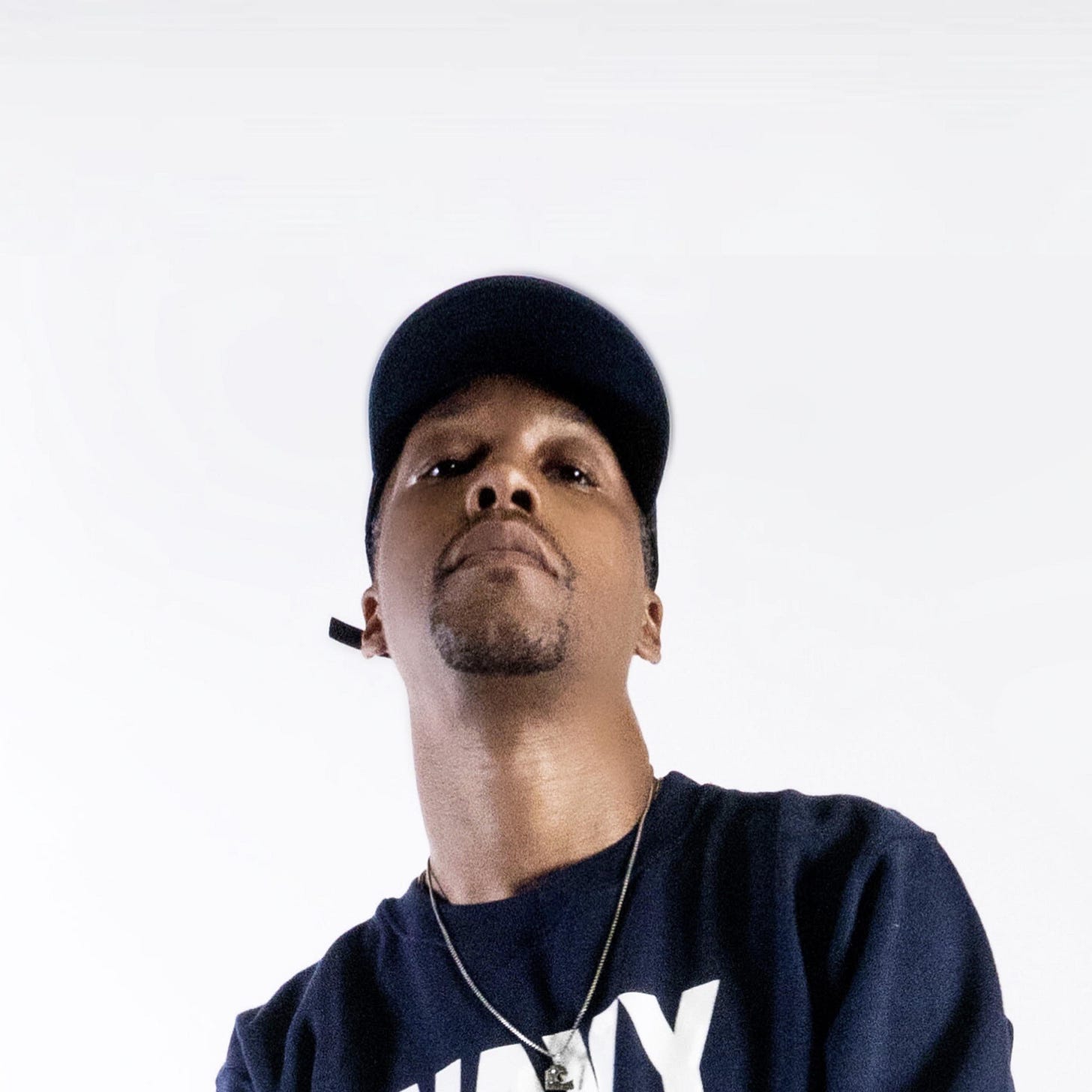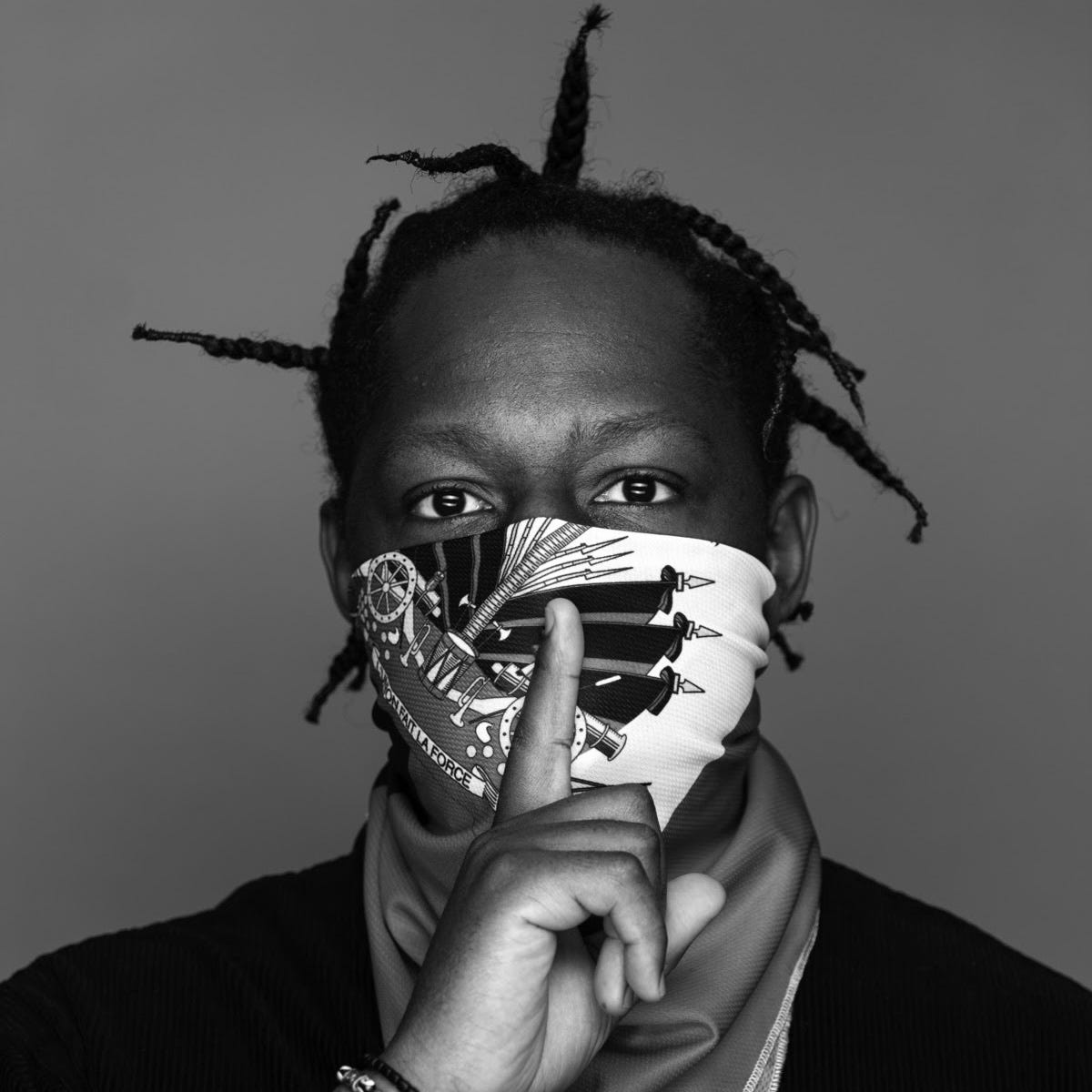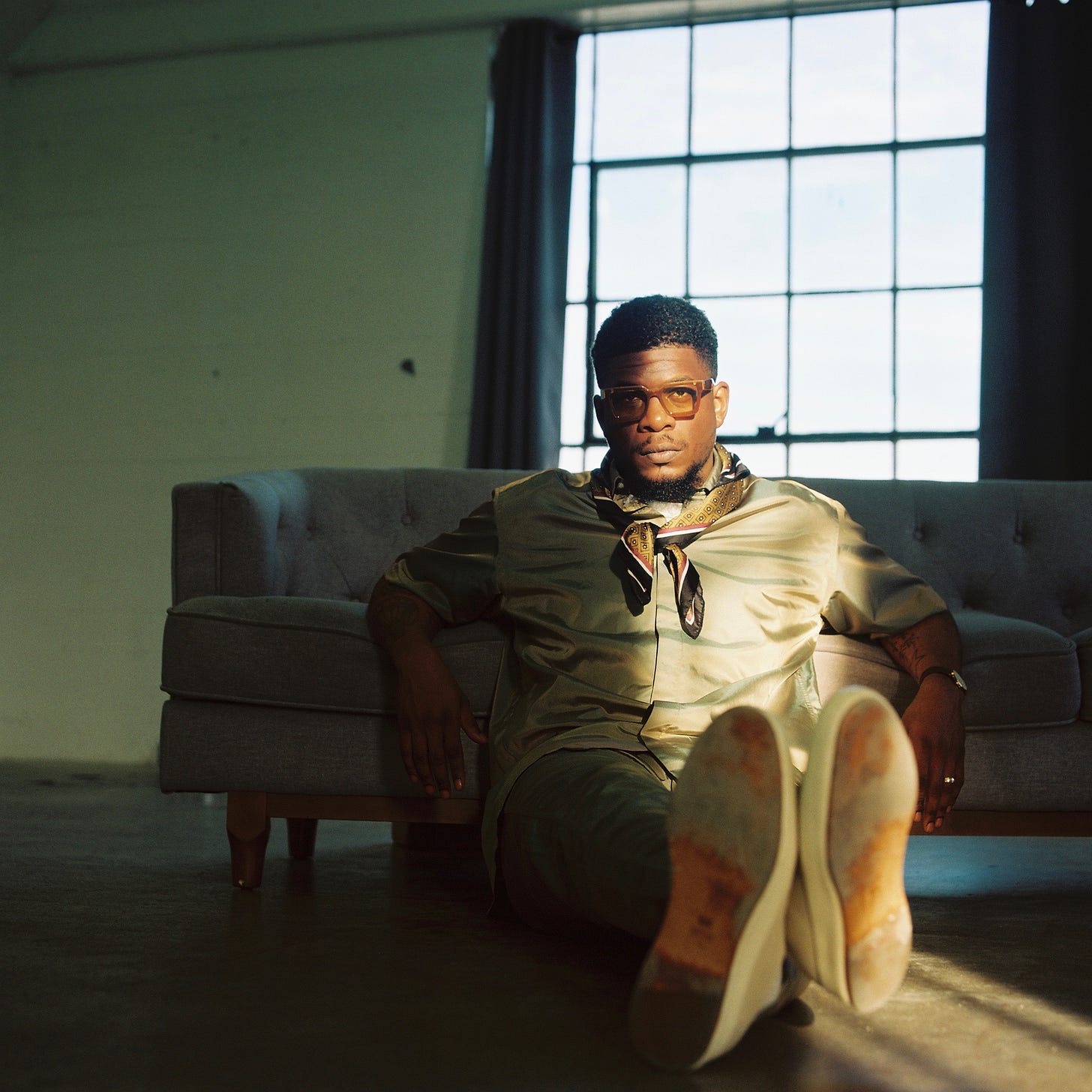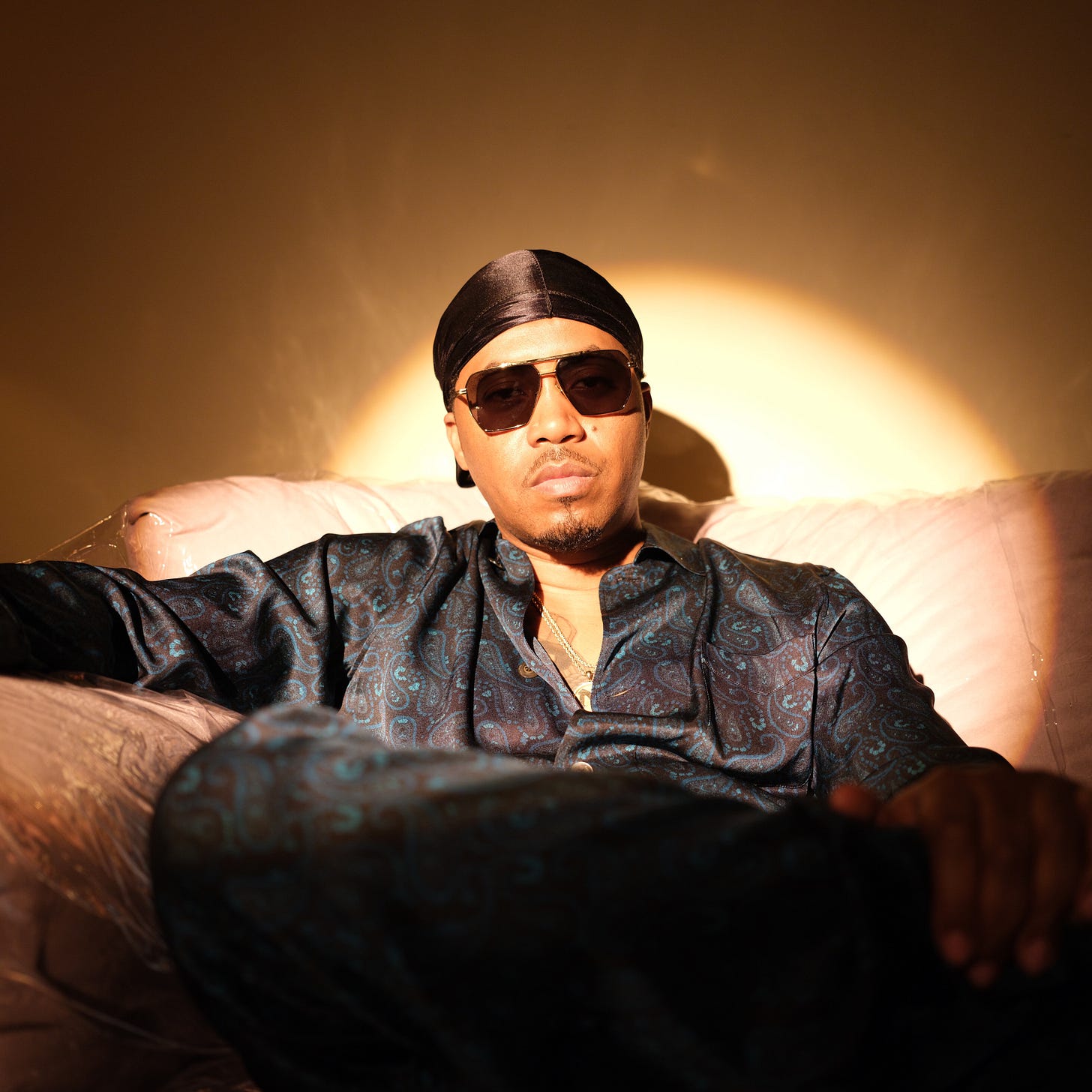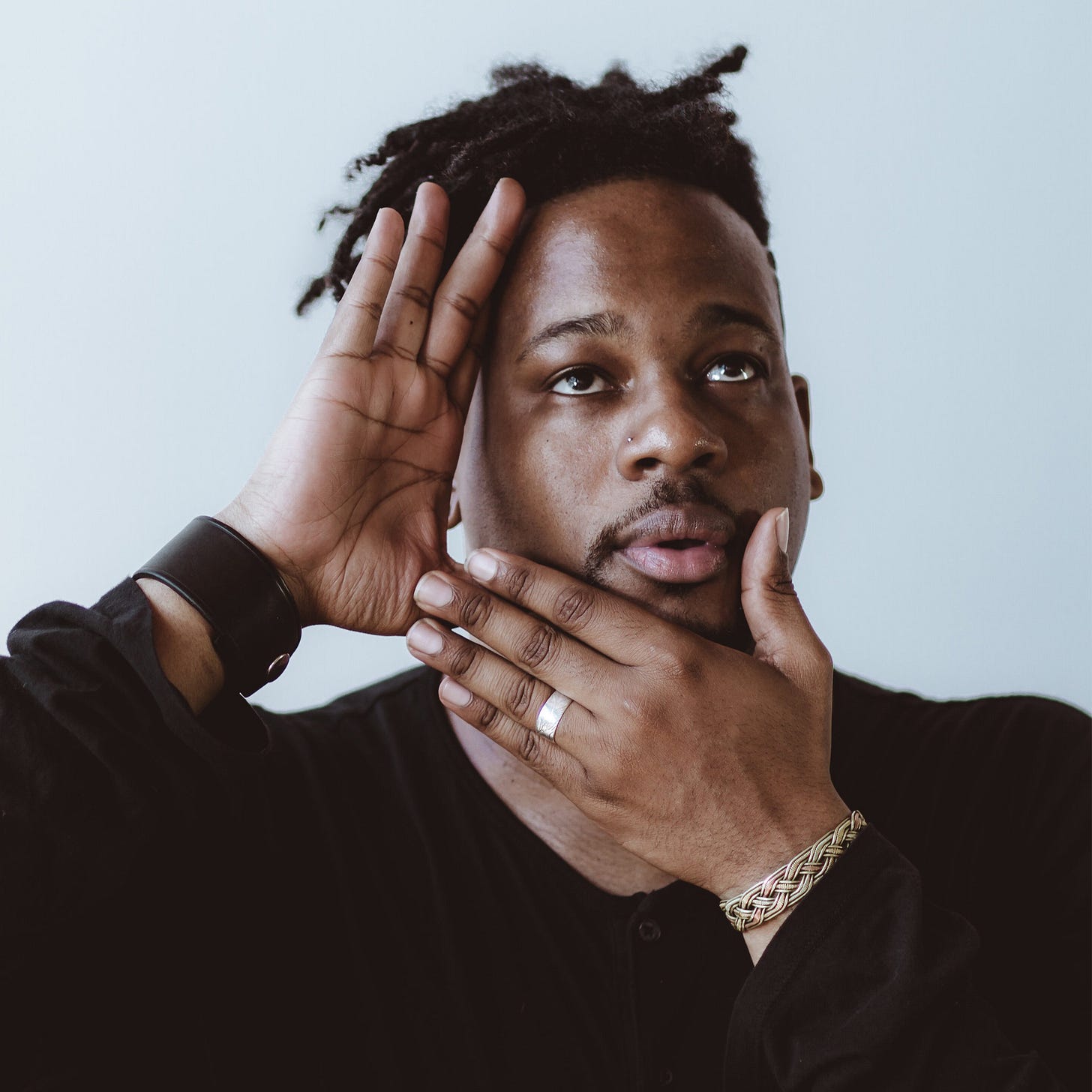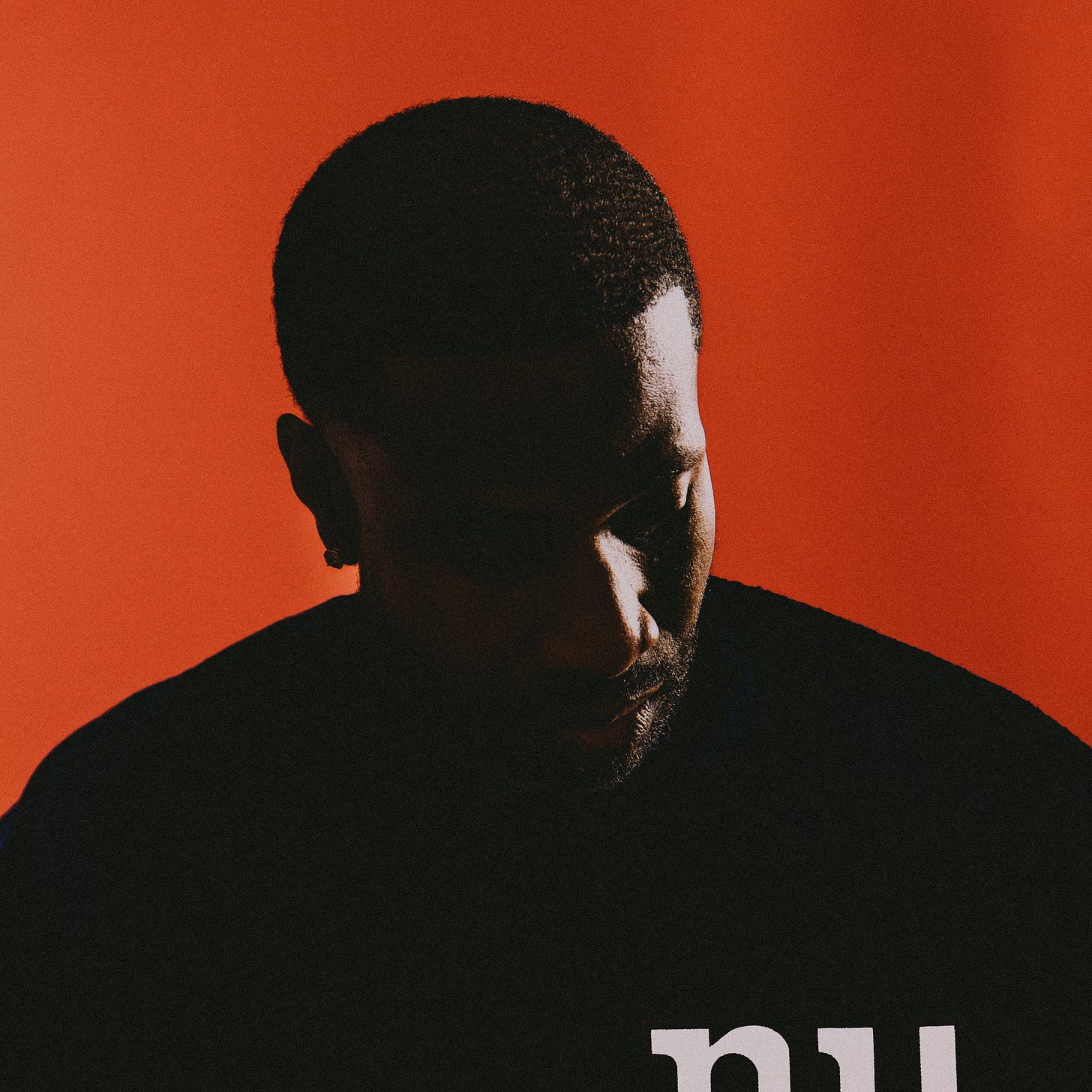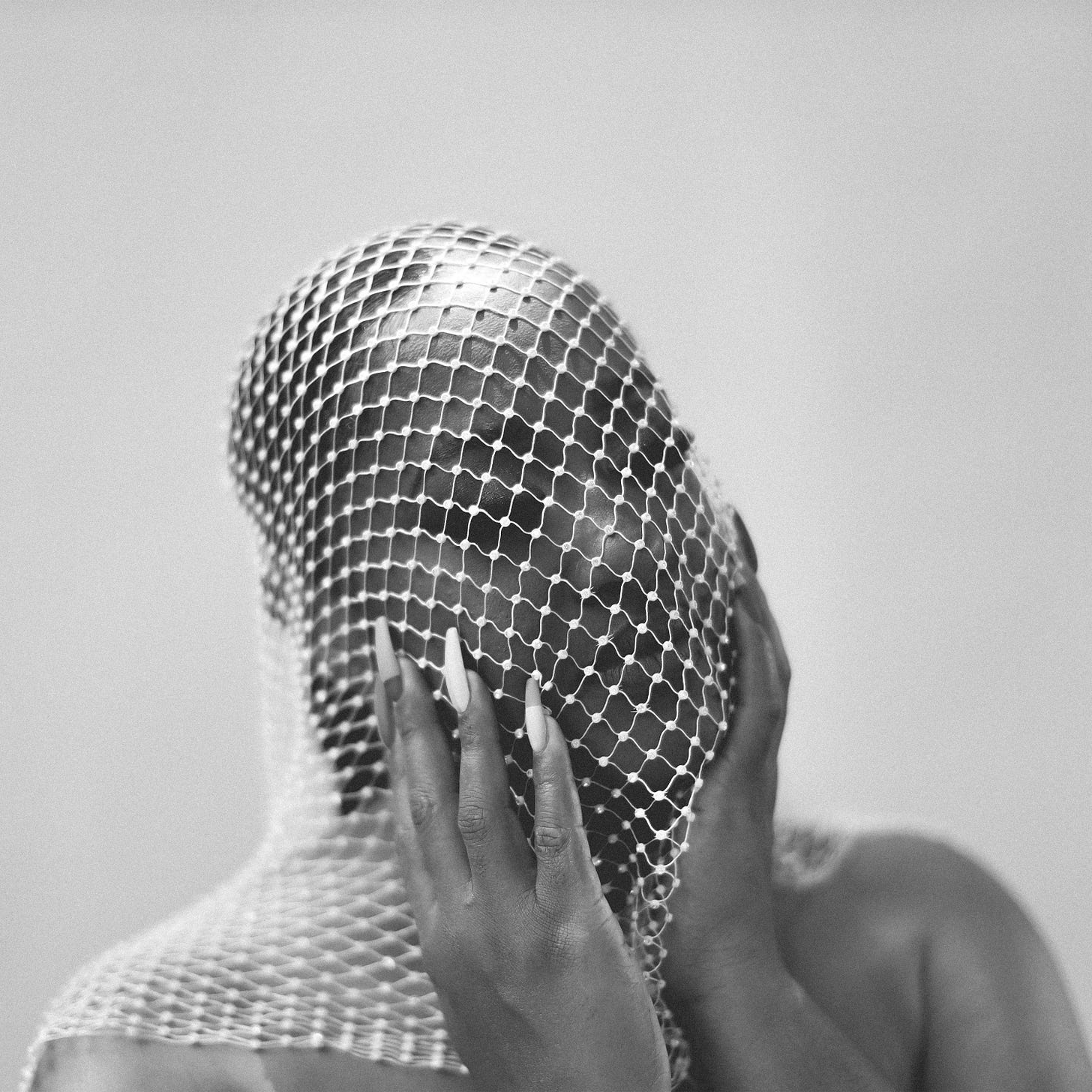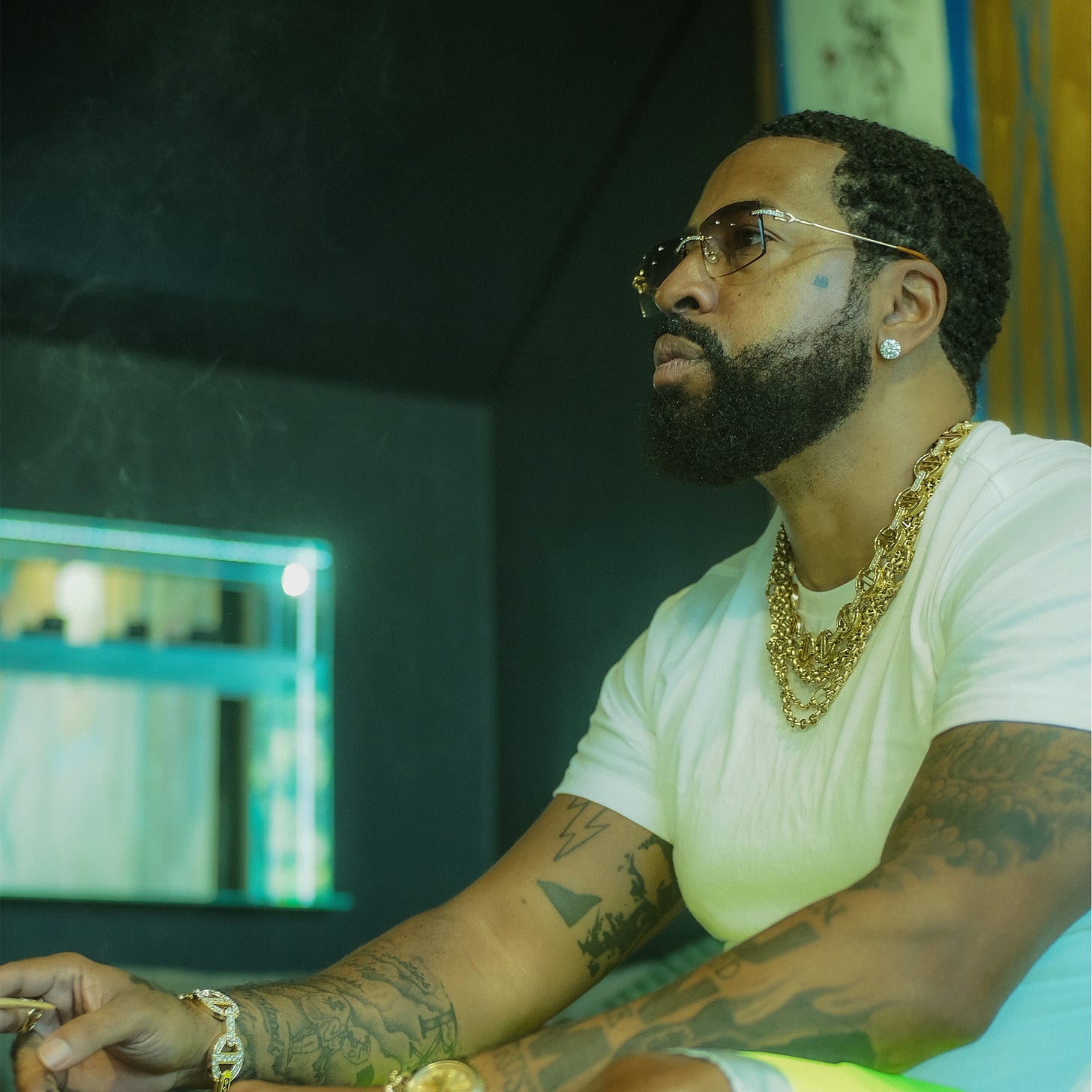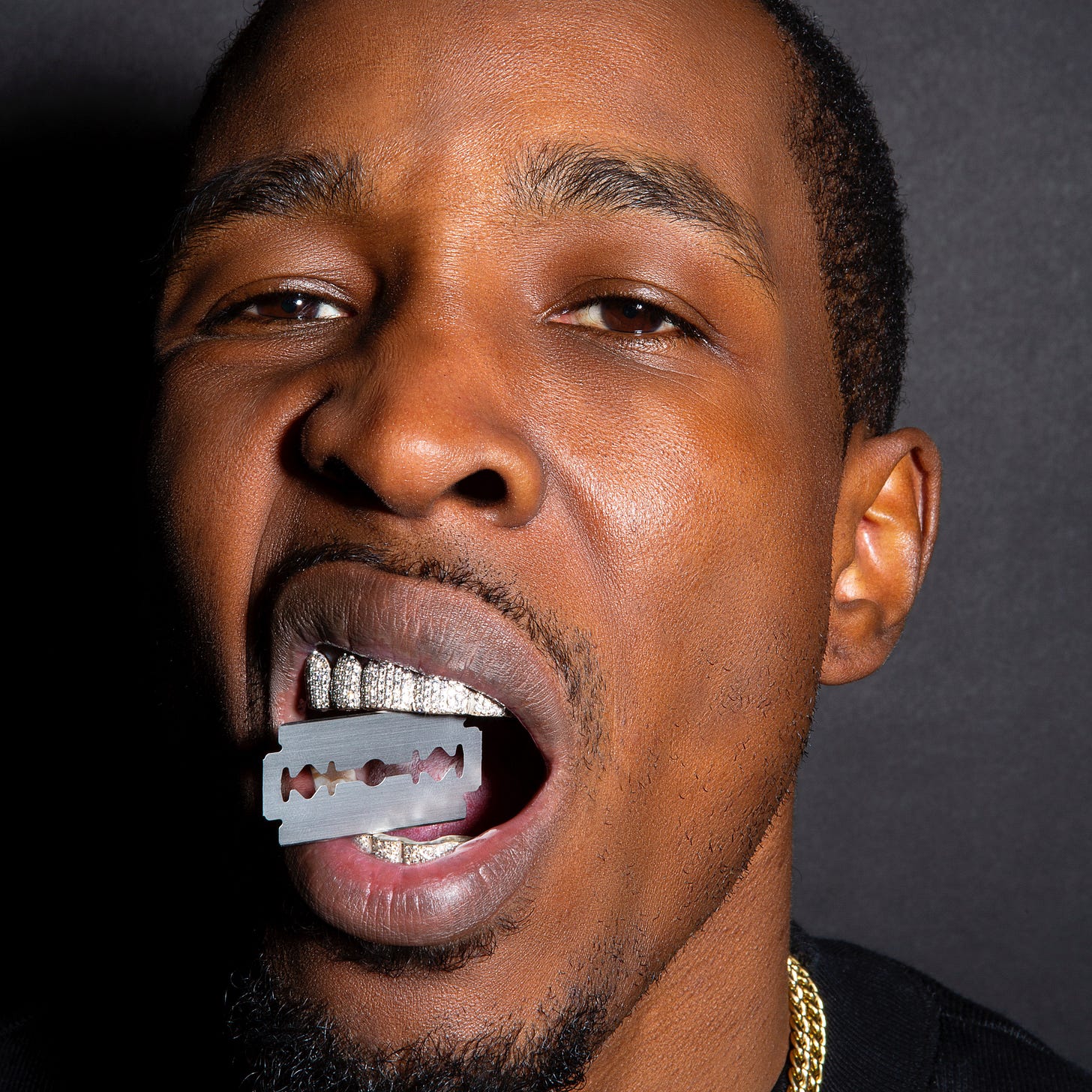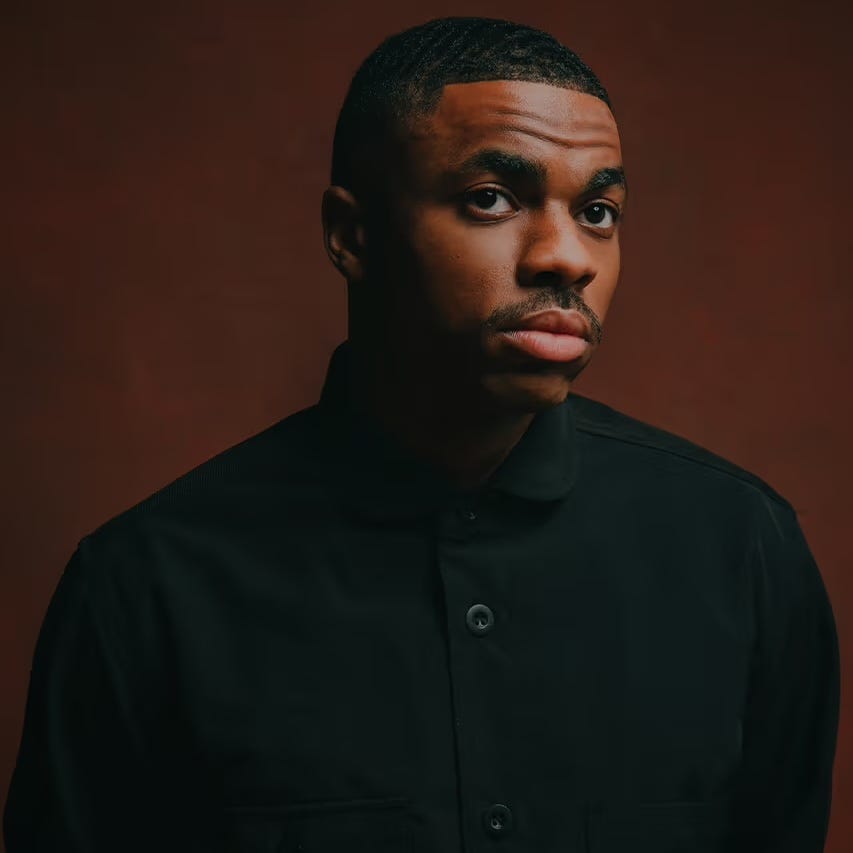The Top 25 Best MCs In the Game Right Now (2024 Edition)
If this list has accomplished its goal, you'll walk away with a greater understanding and appreciation for the craft of MCing and a lot of incredible music to dive into. See you in the comments!
Hip-hop is a vast and varied art form with room for endless permutations and possibilities. The 25 artists profiled in this list represent just a fraction of the incredible talent operating in the genre today, but they offer a compelling cross-section of what makes rap such a vital and enduring medium. Some are fresh young voices on the rise; others are veterans aging like fine wine and hitting new creative peaks. What binds them all is a commitment to artistic excellence, to the fundamental elements of beats, rhymes, and life that have sustained this culture for nearly 50 years now.
This genre is a youth culture that never seems to grow old, a Black art form that contains multitudes, a global movement that continues to expand and mutate in thrilling ways. And as long as there are rappers like the ones in this book, MCs putting their heart and soul into the music, digging deep and aiming high, and giving us new ways to see ourselves and our world, then the culture will never die. From the South Bronx to South Central, Queensbridge to Chicago’s South Side, rap’s holy trinity remains: Two turntables and a microphone.
What binds these artists together is a deep reverence for the power of the written and spoken word, a belief in rap as a vehicle for truth-telling and self-expression. In an era of shortening attention spans and disposable content, they are dedicated to the art of crafting albums and narratives that resonate on a deeper level. They are students of the classics as well as innovators, drawing on the rich history of hip-hop even as they twist it into startling new shapes. In their hands, rap becomes a tool for exploring the full range of human experience, from the personal to the political, the sacred to the profane.
As we look to the future of hip-hop, some artists like these will carry the torch and light the way forward. They remind us that despite great uncertainty and upheaval, rap remains a powerful force for community-building and collective catharsis. In the face of oppression and injustice, the right lyric delivered with the right energy can still spark a revolution. There is still magic to be found in the alchemy of beats and rhymes, new worlds to be imagined, and new stories to be told.
The 25 MCs profiled here are not just great rappers—they are writers, thinkers, and visionaries who use their art to make sense of the world around them and imagine new possibilities for the future. They are the vanguard of a culture that remains as vital and dynamic as ever, even as it enters its fifth decade. And as long as artists like these push the boundaries, make consistently great music, and speak truth to power, hip-hop will continue to thrive and evolve in ways we can only begin to imagine.
This is the power of the MC, the wordsmith, and the storyteller, the voice of a generation and the conscience of a culture. These are the artists who are shaping the sound and the spirit of hip-hop in 2024 and beyond. May their voices continue to ring out loud and clear. The revolution may not be televised, but it will undoubtedly be rapped.
Full Disclosure:
First and foremost, we evaluated each artist’s lyrical abilities. We looked for MCs who are exceptional wordsmiths, crafting intricate rhyme schemes, vivid narratives, and thought-provoking themes in their verses. Technical skill, vocabulary, storytelling ability, and overall writing mastery were vital considerations.
Next, we considered each artist’s body of work, past and present, specifically from the last four years. While this list is focused on the present moment, we must recognize an artist’s overall catalog and output quality over time. Consistency, growth, and staying relevant and compelling were essential factors.
Additionally, we considered each artist’s unique voice and perspective. We looked for MCs with a distinct viewpoint, a compelling personality, and the ability to stand out in a crowded field. Whether through their delivery, storytelling, sense of humor, or social and political commentary, we wanted artists to add something fresh and vital to the conversation.
Finally, we considered intangible factors like charisma, presence, and the ability to connect with an audience. We looked for artists who command attention whenever they step to the mic and have a magnetic quality that draws listeners in and keeps them engaged.
This list celebrates hip-hop’s incredible artistry and diversity in 2024. From veteran legends who are still innovating to hungry young talents who are redefining the game, these are the 25 MCs we believe are operating at the highest level of skill, creativity, and impact. They are the ones who shape the sound and spirit of the culture, the ones who carry the torch for the art of lyricism and the power of the spoken word.
Of course, any list of this nature is inherently subjective and will inevitably spark debate and discussion. Countless other talented MCs could have easily cut, and we encourage readers to seek out and support the artists who resonate with them the most. But the 25 artists profiled here represent the cream of the crop, the standard-bearers for what it means to be a great MC in 2024.
Our list is perfect. We’ll be reading your complaints along the way. If you don’t like it, please make your own list before you make your blood pressure boil up. So, without further ado, let's dive into the list and celebrate the incredible wordsmiths shaping hip-hop’s future. These are the top 25 best MCs in the game right now.
billy woods
In the shadows of the underground, billy woods has spent the past two decades amassing a formidable catalog as one of rap’s most vivid writers and enigmatic figures. The New York-based, Zimbabwe-born artist crafts dense, poetic records grappling with the intersections of history, identity, and personal trauma, all delivered in his signature hazy flow over avant-garde production.
A key figure in NYC’s indie rap scene since the early 2000s, both as a solo artist and one-half of Armand Hammer with ELUCID, woods began to break through to a broader audience with 2012’s audacious History Will Absolve Me. That album established the template for his inimitable style—an impressionistic swirl of childhood memories, pan-African revolutionary politics, and twisted humor delivered in a hypnotic, sandpaper mumble over dark, dissonant beats. He continued to hone his stream-of-consciousness pen game and immersive world-building through the 2010s on classics like Today, I Wrote Nothing and Known Unknowns, low-key epics that reward repeat listening with each tangled turn of phrase. In recent years, he’s hit a stunning late-career stride with acclaimed albums, including Hiding Places and Maps, a noirish journey produced entirely by Kenny Segal, and Aethiopes, a sprawling meditation on the African diaspora and the scars of colonialism.
To listen to billy woods is to be transported into the mind of a restless thinker and master storyteller, each bar an evocative snapshot or pithy observation that invites endless interpretation. His flow is less traditional rap than freeform poetry, his gruff voice drifting in and out of the pocket as he almost speaks in tongues, spilling vivid imagery and cryptic references. He draws you into his stream of consciousness as he flashes back to a harrowing war story from his family history or spins a darkly comic tale of a rap industry misadventure, his writing as allusive and finely-wrought as modernist fiction. The soundscapes he inhabits are cerebral and atmospheric, all brooding loops and negative space courtesy of frequent collaborators like Preservation, Willie Green, and Messiah Musik. woods is a shapeshifter on the mic, slipping between personas and points of view but always seeking to unearth deeper truths about the human condition and the psychic toll of living in a cruel, unjust world. In his understated, nonchalant way, he’s opened up a rich conceptual universe that continues to reveal profound depths for those willing to wade into the shadows and parse each puzzle piece of a bar.
Black Thought
The legendary Roots frontman has been one of the most skillful MCs in hip-hop for over three decades, and he’s still going strong in 2024 as an elite lyricist. With a staggering command of the English language, an impossibly deep vocabulary, and complex multisyllabic rhyme schemes for days, Black Thought is your favorite rapper’s favorite rapper, the consummate MC’s MC still pushing himself to new heights today.
As the lead vocalist of The Roots since the late 80s, Black Thought has been a respected veteran in the game for longer than many of today’s rappers have been alive. With his dense lyricism and dizzying flows, he set the template for the ultra lyrical, super technical style. Year after year, album after album with The Roots, he’s continued to raise the bar as a rapper, from the raw skills of their early output through the more mature songwriting and conceptual heft of their 00s classics. Even removed from his iconic group, Black Thought’s talent is undeniable, bodying legendary radio freestyles and releasing a string of excellent solo records over the past decade. His 2022 album Cheat Codes with Danger Mouse and the follow-up Glorious Game with El Michels Affair proved that in his 50s, he’s rapping with as much hunger, precision, and command of the art form as ever.
Black Thought’s verses are a whirlwind of lyrical gymnastics, packing a ridiculous amount of internal rhyme schemes, assonance, alliteration, and other technical feats into each bar while still saying something meaningful. The breadth of his vocabulary is astounding—you’ll hear words in a Black Thought verse that you’ve never heard in a rap song before. And he delivers it all with a crisp, punchy flow that sounds like he could keep rapping forever without taking a breath or messing up a single syllable. While some hyper-lyrical rappers lose sight of musicality or connecting with the listener, Black Thought always keeps his raps compelling and accessible, never just empty technical exercises. He’s a reminder that even in an era of melodic rapping and vibe-based songs, elite lyricism still has a major place in hip-hop. He remains among the most respected MCs among hardcore rap fans and his fellow artists. 30+ years into his career, Black Thought is still an unstoppable force on the mic, one of the greatest ever to do it, and still among the very best rappers today.
Che Noir
Hailing from Buffalo, NY, Che Noir has been carving out her own lane as one of the most skilled and lyrically fierce MCs in the Buffalo orbit. A prodigy with a rapid-fire flow and sharp-eyed street tales, she’s a rising star bringing a powerful feminine energy to the male-dominated world of gritty East Coast rap. Earning the attention of the head honcho 38 Spesh with a string of searing freestyles and vivid singles, Che made her proper debut on Mello Music Group with the acclaimed 2020 album As God Intended with Apollo Brown, a joint project with 38 Spesh. Her collaborative chemistry was instantaneous, her take-no-prisoners bars slicing through Spesh’s grimy loops like a Ginsu blade. She proved she had the versatility to ride soulful sample chops and menacing trap beats alike. But it was 2022’s solo debut, Food for Thought, cemented Che as one of the best female rappers and one of the hungriest MCs, period. Drenched in mafioso intrigue and hard-won hood wisdom, Che’s regal flow commands attention on every track.
Che attacks beats with controlled aggression in her delivery, her words tumbling out in sharp staccato bursts and stacked rhyme schemes. She can pack an astonishing amount of syllables and slant rhymes into each bar, her flow changing pace on a dime to squeeze in one more vivid turn of phrase. Her voice is deep and husky but nimble in its cadence, capable of ratcheting up the tension or settling into an imperious, laid-back threat. She’s a natural at the rhythmic intensity and complex lyrical layering that defines the best of T.C.F. Music Group’s roster. But Che also sets herself apart with the vividness of her pen game—she doesn’t just spit punchlines but paints fully realized scenes and characters in her raps. You can practically smell the cigarette smoke wafting through her hustler parables and stick-up kid dialogues. And while she certainly takes stylistic inspiration from forebears like Remy Ma and Lady Luck, there’s a fresh perspective in how Che captures the triumphs and tragedies of life as a young Black woman in the streets. Her unflinching honesty and hard-earned insights hit as hard as any punchline. Still just in her 20s, Che Noir has already proven she can go bar for bar with the best in the game—a Queen claiming her rightful place on the throne.
Conway the Machine
Hailing from Buffalo, NY, Conway the Machine has emerged as one of modern hip-hop’s most lyrically ferocious and compelling voices. As a core member of Griselda Records alongside his brother Westside Gunn and cousin Benny the Butcher, Conway has played a vital role in revitalizing the gritty, sample-based sound of 90s East Coast rap for a new generation. With a gruff, muscular flow and a vivid pen game, Conway is a master of hardcore rap braggadocio and evocative street storytelling.
Born Demond Price, Conway came up in Buffalo's rough East Side, hustling in the streets from a young age. In 2012, he survived being shot in the back of the head, an incident that left half of his face paralyzed—but he channeled that near-death experience into his art, re-emerging as an even more motivated and potent MC. He began generating buzz with a series of hard-hitting mixtapes like G.O.A.T. and Reject On Steroids, showcasing his uncompromising lyrics and undeniable charisma. But it was linking up with Westside Gunn to form Griselda that kicked his career into high gear, as the crew's raw aesthetic and DIY approach to the music business made them one of the most exciting things happening in hip hop.
As a rapper, Conway is a throwback to a bygone era of lyrical and stylistic aggression. His flow is all tightly coiled menace, his syllables landing like haymakers as he bobs and weaves around dusty loops and hard-knocking drums. There's a palpable grit and grain to his voice, resulting from his facial paralysis and the uncut hustler lifestyle he emerged from. But Conway also possesses a finely-tuned writer's ear, peppering his bars with vivid metaphors and clever turns of phrase. He excels at the kind of brutal punchlines and slick talk that define the best of Griselda's oeuvre, but he can also spin a gripping yarn about the ups and downs of street life. On standout projects like From King to a GOD and La Maquina, he digs deep into his traumatic past and triumphs over adversity, never shying away from the darkness.
In just a few short years, Conway and Griselda have had a seismic impact on the rap landscape, spearheading an indie rap renaissance and shifting the culture back towards a core emphasis on bars and beats. His unfiltered tales of gunplay and drug dealing, rendered in his impossibly hard cadences, have made him a cult favorite among hardcore rap fans. But he's also earned the respect of the industry's biggest names, trading verses with heavyweights like Eminem, Lil Wayne, and JAY-Z. As the Griselda movement has grown, Conway has emerged as its heart and soul, the gruff but soulful sage-dropping jewels and hard truths. With his penetrating wordplay and unshakeable authenticity, Conway the Machine is a rap heavyweight in every sense, carrying the torch for the culture.
Earl Sweatshirt
Once pegged as a precocious prodigy prone to shocking horrorcore fantasias, Earl Sweatshirt has become one of his generation’s most ambitious and artistically daring rappers. With his free-associative pen game, claustrophobic production, and an uncompromising commitment to his singular vision, Earl is a rapper’s rapper deconstructing the art form to its core elements.
It’s been a long journey from the mischievous teen terrors of his 2010 debut EARL to the present. After returning from his infamous Samoan reform school exile, Earl re-emerged a changed man on his 2013 proper debut Doris, his writing and production darker, denser, and more insular. He continued to peel back the layers of his psyche on the bleak masterpiece I Don’t Like Shit, I Don’t Go Outside before reaching a new creative plateau with 2018’s wide-ranging Some Rap Songs. Pushing further into abstraction and elliptical storytelling, that album solidified his status as one of rap’s boldest experimentalists, a major evolution from his Odd Future origins. He’s continued to stretch the boundaries of his art on recent releases like Feet of Clay and Sick!, stripping the music down to its rawest elements while his pen game grows ever more sharp and incisive.
An Earl Sweatshirt rhyme rewards close listening like few other MCs. His verses are head-spinning journeys into his subconscious, each line a puzzle box of cryptic slang, poetic fragments, and tangled personal reflections. He’s not one for easy hooks or digestible song structures—instead, Earl invites you to get lost in the maze of his manic depressive mind as he jumps from heady observation to wry punchline in dizzying succession. His taste in production has grown darker, murkier, and more insular, all ghostly loops and stuttering drums enveloping the listener in a noirish fog. The effect can be disorienting and dense as Earl spills his guts in a halting flow, but therein lies the brilliance. He treats rap as a form of avant-garde art, more akin to freeform jazz or abstract poetry than pop music, unafraid to wade into rugged psychic terrain to confront his demons. But even at his most obtuse, Earl’s wordplay and insight cut deep, flashes of mordant wit and hard-earned wisdom shining through the haze.
ELUCID
A key force in the resurgence of NYC’s indie rap scene, ELUCID has spent the better part of two decades amassing a weighty catalog of knotty, visionary underground hip-hop. Both as a solo artist and one half of the revered duo Armand Hammer, the Brooklyn native is a poetic stealth bomber, his abstract bars and renegade spirit jolting life into the genre with each jagged verse.
Raised bouncing between Bed-Stuy brownstones and Long Island suburbs, ELUCID came of age in the NYC indie rap scene of the early 2000s, burning up the open mic circuit with his subversive rhymes and experimental leanings. Early solo records like Save Yourself and Valley of Grace established him as a writer of rare intensity, his bars a swirling blur of Black liberation theology, five-percenter wisdom, and third-eye visions. But it was linking up with fellow traveler billy woods in the 2010s as Armand Hammer that elevated them both to a new plane, their avant-garde sensibilities and sharp political analysis combining into some of the decade’s most bracing music on albums like Race Music and Paraffin. In recent years, ELUCID has continued to sharpen his solo pen while expanding his sonic template, delivering two of his most ambitious releases yet in 2020’s Don’t Play It Straight and 2022’s I Told Bessie, collections of noirish, impressionistic raps over foggy, sample-warped beats.
To enter the world of ELUCID’s music is to have your third eye prised open and your consciousness expanded; his raps a psychedelic stream of Afrocentric esotericism and trenchant social commentary. His flow is less traditional verse-chorus structure than a freeform incantation, his husky rasp weaving in and out of murky sample collages and astral synth washes. He’s also a collagist behind the boards, warping soul and Jamaican dub records into hazy, dreamlike soundscapes as if you’re drifting through a long-lost basement tape at 3 AM. The effect is intoxicating but never easy to listen to. ELUCID’s music conjures an alternate history of radical Black thought and a near dystopian present, as if Sun Ra and Amiri Baraka were trading versus in the last days. But even at his most abstruse and otherworldly, ELUCID grounds his raps in the hard-bitten realities and sonic textures of the Brooklyn streets that made him a believer in the power of hip-hop to map a path to liberation even in dark days.
eLZhi
Detroit’s eLZhi has long been one of hip-hop’s most revered lyricists, a microphone fiend’s microphone fiend celebrated for his intricate rhyme schemes and vivid storytelling. Over the course of a two-decade career, both as a solo artist and a member of the influential Motor City trio Slum Village, eLZhi has amassed a formidable catalog of dense, technically immaculate raps. With his liquid, smooth flow and enigmatic presence, he remains one of rap’s most compelling stylists, a craftsman dedicated to elevating the art of MCing.
He first made waves as a member of the group Breakfast Club in the late 1990s, showcasing his lyrical gifts on the local Detroit scene. But it was replacing J Dilla in Slum Village in the early 2000s that introduced him to a national audience, as he appeared on the group’s critically acclaimed albums Trinity (Past, Present and Future) and Detroit Deli (A Taste of Detroit). His dexterous wordplay and soulful sensibilities perfectly fit Slum Village’s jazz-inflected boom-bap, helping to create a new template for underground Detroit rap. But it’s as a solo artist that eLZhi has truly shined, carving out an uncompromising lane as one of hip-hop’s preeminent lyrical technicians.
His 2008 debut, The Preface, was a tour de force of intricately stitched rhyme schemes and conceptual heft, positioning him as a bearer of the backpack rap flame. But it was 2011’s Elmatic that announced him as a maestro on the mic, as he re-worked Nas’s classic Illmatic in its entirety, flipping the original songs into a suite of original concepts and stories. From there, he’s continued to sharpen his pen on projects like 2016’s Lead Poison and 2020’s Seven Times Down Eight Times Up, a masterful display of writer’s block-conquering perseverance, but don’t sleep on the Georgia Anne Muldrow-assisted Zhigeist and last year’s Oh No-assisted Heavy Vibrato. As a lyricist, eLZhi is celebrated for his impeccable flow and knotty wordplay. He’s a syllable-cramming maximalist, employing dense phonetic patterns and internal rhyme schemes that dazzle with repeat listens. But he never sacrifices clarity or substance for the sake of style. His writing is packed with vivid imagery and gripping narratives, often grappling with weighty themes of depression, addiction, and the struggles of the artistic process. He wields his words like finely threaded needles, stitching together tapestries of interlocking ideas and observations.
Freddie Gibbs
The Gary, Indiana native has steadily evolved into one of his era’s most well-rounded and consistently excellent rappers. With his vivid street tales, versatile flows, and gritty yet musically sophisticated style, Freddie Gibbs is an elite MC at the height of his powers in 2024.
First making waves with his manic, rapid-fire flow in the late 00s, Gibbs seemed destined for stardom, showcasing ridiculous rapping abilities and the charisma of a future superstar. But a falling out with Interscope delayed his rise, forcing him to take the long road to the top as he ground it out on the underground circuit. Over the 2010s, he generated a reputation as one of the hungriest and hardest-working rappers in the game, releasing a steady stream of stellar projects from his Madlib collab Piñata to his solo album Shadow of a Doubt. 2019’s Bandana, his second full-length with Madlib, represented a creative peak and his mainstream breakthrough. He’s continued that excellence with 2020’s Alfredo, produced by The Alchemist, cementing his position as a leading hip-hop voice.
Gibbs is an astonishingly fluid and adaptive rapper, able to transition between breakneck, seamlessly double-time flows and relaxed, strutting deliveries while sounding completely natural. His lyricism is equally flexible. He can snap on a gritty street track with the best of them, spinning intricate crime narratives with sharp imagery and slick punchlines. But he’s also at ease over lush, jazzy beats, dropping subtle wordplay and dexterously riding the pocket of the instrumentals. He has a gift for evocative storytelling, making you feel the details of his street parables and personal reflections. His pen game has only gotten sharper over time as he’s evolved into an elite lyricist. And he has an inimitable, standout rap voice, slightly raspy with a subtle Southern twang but adaptable to any style. Gibbs has really hit his stride working with elite producers like Madlib and The Alchemist, his raps sounding right at home over their soulful soundscapes. But whether it’s a grimy trap beat or a beautiful boom-bap instrumental, Gibbs will absolutely master it on the mic. He’s spent over a decade in the trenches perfecting his craft, and in 2024, Freddie Gibbs is one of the most purely gifted rappers alive, minus the social media shenanigans.
Jae Skeese
Buffalo’s Jae Skeese has emerged as one of the most exciting young voices in the Griselda Records camp, a razor-sharp lyricist with a knack for vivid street tales and fly talk. As part of the collective’s tight-knit crew of MCs alongside Conway the Machine and 7xvethegenius, he has quickly established himself as a rising star, bringing a youthful energy and fresh perspective to Griselda’s vintage East Coast sound. With a nimble flow and an ear for dusty, sample-heavy beats, Skeese is helping to carry the torch for a new generation of Buffalo rap. Hit play on Abolished Uncertainties and his collaborative project with Superior to see what we’re getting at.
Skeese has an unhurried but laser-focused flow on the mic, his words landing with a sharpshooter’s precision. He’s a specialist in the kind of casually brilliant rhymes that make you do a double take—he’ll slide a clever turn of phrase or pop culture reference into a bar almost subliminally as if he’s not even trying. But there’s a real craft and cunning to his pen game, as he builds layered schemes and one-liners that stick to your ribs. He’s got a gift for evoking the sights, sounds, and textures of the streets he came up in, spinning his dope boy memories into gripping cautionary tales. But he’s also not afraid to cut loose and have some fun on the mic, peppering his verses with cheeky flexes and witty social commentary. The future is bright for this Buffalo wordsmith.
JID
The Atlanta upstart has been scorching mics for a few years now, but in 2024, he’s reached a new level, emerging as one of hip-hop’s most electrifying MCs and personalities. Possessing a rare combination of supersonic flows, dynamic songwriting, and an elastic delivery, JID is taking the art of rap into thrilling new dimensions.
Rising through the ranks of Atlanta’s Spillage Village collective, JID first made waves with 2017’s The Never Story, a solid introduction to his lightning-quick flows and down-to-earth charisma. But it was 2018’s DiCaprio 2 that made rap fans everywhere take note, proving he could hang with greats like J. Cole over a range of booming beats. His next quantum leap came with 2022’s The Forever Story, a future classic pushing his craft to transcendent new heights. Brimming with introspection and nimble storytelling, it showcased his growth into a songwriter of the highest order.
When it comes to pure rapping ability, few can go toe-to-toe with JID. He’s a high-octane MC, capable of stringing together head-spinning verses at astonishing speeds without losing an ounce of clarity. His flow is a marvel, dense with tricky triplet patterns and breakneck wordplay, constantly shapeshifting to attack beats from every angle. Even at his most rapid-fire, there’s a musicality and control to his flow that sets him apart. Just as impressive is his knack for stretching and contorting his voice, slipping in and out of a yelping croon or a guttural rasp to keep listeners on their toes. But he’s not just an empty technical wizard—JID is a writer of real substance, packing heavy introspection and evocative Southern storytelling into his stanzas. He can open up about trauma and his come-up one minute, then trade witty punchlines with the best of them the next. It’s elite-level rapping, but it is in service of baring his soul. With his Dreamville labelmates and peers pushing him to expand his artistry, JID is growing into the total package—a dynamic rapper, a conceptual storyteller, and a genuine superstar. The future is bright for this ATLien.
Ka
The Brownsville, Brooklyn veteran is a rapper’s rapper, an artist’s artist—a living testament to the power of dedication to craft and unshakeable artistic integrity. Ka has been quietly releasing some of the most vivid, poetic hip-hop in NYC history for over two decades, a lone samurai honing his pen game to razor-sharpness with each carefully assembled offering.
A key figure in the NY underground since the 1990s as part of the group Natural Elements, it was in 2008’s Iron Works that Ka began to draw national attention as a solo artist. At a time when NYC rap had lost mainly its grittiness in favor of glossy pop sounds, Ka’s music was a welcome throwback to the city’s lyrical glory days, his raps hard-boiled yet steeped in Eastern mysticism and Greek mythology. Over the next decade-plus, he refined his style to monk-like perfection, releasing a remarkable run of self-produced albums like Grief Pedigree, The Night’s Gambit, and Honor Killed the Samurai. His writing only grew more incisive as he continued to reflect on his rugged upbringing and Samurai code of ethics, the music hauntingly beautiful. He hit a new peak with 2020’s Descendants of Cain, a biblical epic rendered with the fine-grained detail of a master novelist, as well as 2021’s A Martyr’s Reward and 2022’s Languish Arts and Woeful Studies.
Ka is a poet of the streets; his raps are meticulously crafted and layered with meaning as a Chinese scroll painting. His voice is a gravelly whisper, his flow patient yet hypnotic as he unfurls his twisty, multisyllabic rhyme schemes like clues to a mystery. The production is minimal to the point of austerity, often just a whispery vocal sample and a skeletal beat, so it is better to direct your focus to the lyrics. And what lyrics they are—Ka’s raps are as sharp and gleaming as a bloodied blade, weaving together his coming of age in the Brooklyn projects with military imagery and spiritual allusions. He has an uncanny eye for the small, telling details of street life: the weight of a gun, the glint of a gold chain, the eerie calm before a conflict—that he spins into powerful, extended metaphors. But he’s also grappling with more profound existential questions through his art, meditating on cycles of violence and the warrior codes that have shaped him. Listening to a Ka album requires deep focus and multiple revisits to catch every reference and nugget of wisdom, each song an ancient riddle to unpack. In an era of disposable mixtapes and short attention spans, his craft and dedication to the culture are a reminder of what’s possible when an artist stays true to his vision, however out of step it may be with the mainstream.
Kendrick Lamar
Was there any doubt? Kendrick Lamar is quite simply the best rapper alive, and it’s not even close. No other MC can match his combination of raw lyrical ability, conceptual depth, cultural relevance, and commercial success. With a historic run of classic albums, endless jaw-dropping verses, and his profound influence in taking hip hop to new heights as an art form, Kendrick Lamar is the undisputed king of rap in 2024, thanks to defeating the biggest rap artist in the world with four incredible diss tracks.
Coming straight outta Compton, Kendrick Lamar Duckworth started his rise as K. Dot, dropping impressive mixtapes and catching the attention of legends like Dr. Dre and Snoop Dogg with Overly Dedicated, and the cult favorite, Section.80. But it was his major label debut good kid, m.A.A.d city in 2012 that announced him as a generational talent, an instant classic exploring his Compton upbringing with vivid storytelling and elite lyricism. He followed it up with the masterpiece To Pimp a Butterfly in 2015, an ambitious, sprawling opus that pushed the very boundaries of hip-hop and established Kendrick as the most important voice of his generation. DAMN. continued his unprecedented streak in 2017, packed with hits while still maintaining his lofty artistic standards. After a 5-year wait, he finally returned with the double-disc album Mr. Morale & the Big Steppers in 2022, another stunningly deep and powerful work examining his life and growth.
When it comes to skills on the mic, no one can compare to Kendrick. His lyrics are astonishingly dense and layered, loaded with intricate rhyme schemes, creative imagery, and profound underlying themes. He’s a master storyteller, painting rich scenes and developing characters with his words. He’s endlessly creative with flows and deliveries, contorting his voice to fit each song. He can snap on an explosive, aggressive verse or smoothly ride a downtempo beat with equal mastery. His pen game is unmatched, every bar a carefully crafted gem. And it’s all in service of saying something meaningful, as Kendrick consistently tackles deep issues in his music, grappling with race, identity, family, faith, and his growth and struggles as a man and artist. No other rapper has ever achieved the rare combination of commercial dominance, cultural impact, respect among peers, and sheer rapping excellence as Kendrick Lamar. He’s a once-in-a-generation MC. All hail King Kendrick.
Killer Mike
As one-half of the groundbreaking duo Run the Jewels and a vital solo artist in his own right, Killer Mike has long been one of hip-hop’s most dynamic and outspoken voices. For over two decades, the Atlanta native has used his booming baritone and politically charged lyrics to speak truth to power, channeling the South’s righteous anger and indomitable spirit into music that slaps and provokes thought. Killer Mike has become one of rap’s most essential elder statesmen with his unapologetic Blackness, fierce commitment to social justice, and bone-deep love for hip-hop culture.
Mike first gained national attention via his scene-stealing verses on OutKast’s 2000 classic Stankonia, showcasing his elastic flow and charismatic presence. He parlayed that momentum into a successful solo career, dropping acclaimed albums like I Pledge Allegiance to the Grind and R.A.P. Music that positioned him as a torchbearer for Southern rap’s politically engaged wing. But linking up with Brooklyn rapper/producer El-P to form Run the Jewels in 2013 unlocked Mike’s full potential as an artist. Across four explosive albums filled with tag-team lyricism and incendiary commentary, the duo has created some of this century’s most urgent and powerful protest music.
Ultimately, Killer Mike’s greatest gift has been his ability to channel his righteous anger into something uplifting and empowering. His music is a rallying cry, a call to arms that speaks to the resilience and indomitable spirit of the oppressed. With his booming voice and radical vision, he’s become one of rap’s most vital moral compasses, a guiding light in dark times. And with each new verse and album, like last year’s MICHAEL, he continues to cement his legacy as one of his generation’s greatest and most important MCs. Killer Mike is the people’s champ, a rapper with the heart of a revolutionary.
Little Simz
The UK phenom has been carving out her own lane across the pond for years and entered a new stratosphere with a pair of stunning albums establishing her as one of the most vital voices in music. Little Simz is genuinely doing it all in 2024: a rapper’s rapper with serious skills, a conceptual artist crafting albums of real depth, and a burgeoning superstar making waves in UK hip-hop. First turning heads in the mid-2010s with a string of independent solid records, the London native really hit her stride by the decade’s end with the stellar GREY Area, a stunning showcase for her dexterous flows and ever-evolving artistry. But 2021’s Sometimes I Might Be Introvert announced her as a generational talent, a sprawling opus grappling with fame, family, and self over lush orchestral production. She followed it up with another gem in NO THANK YOU in 2022, stripping back the sound to raw raps and killer grooves.
Little Simz is a revelation on the mic, one of the most technically gifted rappers in hip-hop today. Her rapid-fire flow is jaw-dropping, stringing together impossibly intricate rhyme schemes at breakneck speed without missing a beat. She’s mastered a conversational yet complex delivery that allows her to cram syllables into each bar while sounding wholly effortless and natural. Her writing is deeply personal and probing as she documents her struggles with anxiety, explores her Nigerian heritage and family dynamics, and charts her growth into an artistic powerhouse. She brilliantly plays with perspective and form in her rhymes, flipping between first, second, and third person and navigating past and present. It’s high-level rapping, but it is always in service of baring her soul and speaking her truth. Her recent albums’ production and live instrumentation have been equally stellar, giving her raps a powerful, often majestic sonic backdrop. She’s not just one of the best UK rappers but one of the most exciting, visionary young artists in music today. With a tireless work ethic and an uncompromising commitment to her art, expect Little Simz to continue to reach new heights and lead the vanguard of hip-hop for a long time.
Lupe Fiasco
The Chicago native remains one of the sharpest lyricists and most conceptually ambitious MCs in hip hop nearly two decades into his career. Lupe Fiasco’s mind-blowing wordplay, layered metaphors, and conceptual depth are almost unmatched as he pushes himself creatively and drops lyrical gems in his late career resurgence.
Bursting onto the scene with his classic debut Food & Liquor in 2006, Lupe immediately established himself as one of the premier rappers of his generation. His blend of stunning lyrical acrobatics with meaningful social commentary and conceptual storytelling made him a thinking man’s rapper with serious mainstream appeal. Stellar follow-ups, The Cool, even as label issues slowed his output for a few years. But in recent years, he’s come back with a vengeance, releasing some of the most uniquely creative concept albums of his career with Tetsuo & Youth, DROGAS Wave, and Drill Music In Zion.
No one can bend language quite like Lupe Fiasco. His multilayered wordplay is astonishing, as he crafts intricate metaphors and hidden conceptual gems that continue to reveal themselves with repeat listens. He’s one of those “if you know, you know” rappers, slipping ridiculously clever references and meanings into his lyrics that will go over most listeners’ heads. But you don’t need to unpack all the layers to appreciate his razor-sharp lyricism and the way he glides over beats with finesse. Beyond just rapping circles around his peers, Lupe uses his voice to grapple with society’s ills, offering astute and nuanced sociopolitical commentary woven together with personal storytelling. He’s also one of rap’s great conceptual minds, crafting sprawling album-length narratives and themes. With his late-career albums, he’s pushed himself into new creative territories, experimenting with jazz and drill sounds while still bringing unmatched raps. He may fly under the mainstream radar in 2024, but Lupe is still one of the most unique and lyrically gifted MCs in the game, a wizard with the pen still exploring the outer reaches of where hip-hop lyricism can go.
Mach-Hommy
An elusive and enigmatic figure shrouded in mystery, Mach-Hommy lets his exquisite pen game do the talking. The Haitian-American lyricist has cultivated a mythical stature as one of the underground’s most brilliant wordsmiths through his vivid street scriptures, poetic flows, and impenetrably dense lyrics.
Rising through the mid-2010s as an associate of Griselda’s Conway and Westside Gunn, Mach differentiated himself from the jump with a singular aesthetic and lyrical approach all his own. Whether it was the soulful HBO (Haitian Body Odor) grooves or the lavish flights of Fete Des Morts, his Kreyol-soaked raps stood out from the pack. But his star-making turn came with 2021’s Pray for Haiti, his first project released on Griselda Records proper. Entirely produced by Westside Gunn, it was a revelation, Mach’s razor-sharp bars unspooling over opulent beats, a breathtaking display of craft and chemistry. He’s continued to ascend in the years since, guarding his mystique while lacing stellar features and churning out more sterling Dump Gawd collections. In an era of constant noise and social media antics, Mach-Hommy remains a cipher, an artist’s artist for those who know.
Trying to unravel a Mach-Hommy verse is like peeling an onion—there are layers on layers of cryptic references, slick punchlines, and poetic gems hidden in the creases. His writing is dizzyingly intricate, more of a literary experience than typical rap lyricism, demanding repeat listens to catch each carefully layered bar. He glides over beats with a nimble flow and keeps listeners on their toes by switching to his native Kreyol tongue. Mach is a vivid storyteller, capturing the triumphs and tragedies of his Haitian heritage and his journey from poverty to the rap game’s top in evocative detail. But he never dumbs it down, continually operating on a higher plane with his elevated vernacular and winding train of thought. Even his ad-libs and song structure are carefully constructed, as he uses snippets of Haitian kompa music and other aural motifs to set a distinct, immersive mood. In an era where many MCs are more like celebrities than master artisans, Mach-Hommy is a rare jewel, an artist purely dedicated to elevating the art of rapping with each cryptic bar. Don’t expect him to reveal all his mysteries, but trust that Mach will bless the devout with impeccable scripture.
Mick Jenkins
The Chicago wordsmith has spent the better part of a decade carving out a lane as one of the sharpest writers and freest thinkers in hip hop’s new generation, a conscious poet searching for truth in an age of disinformation. With his smooth delivery, vivid lyricism, and aquatic-themed conceptual world-building, Mick Jenkins is a one-of-a-kind MC inviting listeners to expand their minds.
First flashing his prodigious penmanship alongside fellow Chi-town upstarts Chance The Rapper and Vic Mensa in the early 2010s, Mick broke through with 2014’s The Water[s] mixtape, a head-turning collection of psychedelic soul and third eye-opening raps. Fully formed from the jump, Mick’s metaphysical musings on race, relationships, and navigating the rap game earned him a rep as one of the freshest young voices out, a budding sage seeking to purify hip hop’s waters. He deepened his spiritual and sonic palette on the excellent conceptual full-lengths Wave[s] and The Healing Component, his nimble wordplay and intricate world-building stretching out over twinkling soul-jazz beats. In recent years, he’s liberated himself from thematic constraints without losing his incisive edge on albums with Pieces of a Man, Elephant In the Room, and last year’s The Patience as potent as ever, even as he grows more personal in his storytelling.
Mick Jenkins moves with an unhurried, unbothered cool on the mic, his flow a free-associative amble through his subconscious. His voice is gruff yet silky smooth, with a Chicago twang that can sound by turns righteous and reflective, weaving in and out of the pocket of his lush, languid productions. The man knows his way around a turn of phrase, crafting intricate conceits and layered metaphors that connect the material and the spiritual. His early catalog, in particular, played like one extended meditation on finding purity and truth in a dirty world, all couched in an extended water-as-consciousness metaphor. But even as he’s relaxed some of the conceptual density in recent years, Mick’s writing remains vivid and thought-provoking, grappling with love, ego, racism, and self-discovery with poetic detail and hard-earned wisdom. There’s a soulful warmth and understated confidence to his presence on wax, an audible twinkle in his eye inviting you to follow him down each syllabic rabbit hole. For Mick, hip-hop is a vehicle for spiritual seeking and self-actualization, a path to tap into something greater than himself even as he flexes his lyrical muscles. In an era of bluster and clout-chasing, his ruminative rhymes and pursuit of a higher truth feel more vital than ever, a steady stream of light in dark times.
Nas
Nas is a living legend, a titan of hip-hop who has shaped the course of the genre for nearly three decades. From his groundbreaking debut, Illmatic, in 1994 to his late-career resurgence with albums like Life Is Good and King’s Disease, Nas has consistently set the standard for lyricism and storytelling in rap. His vivid portraits of life in the Queensbridge projects, dexterous wordplay, and cinematic narratives have made him one of the most influential and respected MCs ever. Even as the sound and style of hip-hop has evolved over the years, Nas has remained a constant, a guardian of the art form and a master of the craft.
As a lyricist, he is celebrated for his vivid storytelling, incredible wordplay, and ability to pack astonishing detail and emotion into every bar. His writing is both deeply personal and universally resonant as he grapples with issues of poverty, violence, and systemic oppression through the lens of his own experiences. He has a gift for painting complex characters and scenarios with just a few deft strokes, for making the specific feel epic and the local feel global. His flow is nimble and adaptable, able to switch from a laid-back drawl to a rapid-fire barrage of syllables at a moment’s notice. His use of metaphor and imagery is second to none, as he crafts lines that are both intellectually dazzling and emotionally devastating.
Over the course of his career, Nas has released a string of classic albums that have cemented his status as one of the greatest rappers of all time. From the mafioso epic It Was Written to the political firebrand of Untitled to the mature introspection of Life is Good, he has continually pushed himself to new heights as a writer and a thinker. His influence can be heard in countless MCs following in his footsteps, from Kendrick Lamar to J. Cole to Cordae. And his impact extends beyond just hip-hop, as he has become a cultural icon and a voice for social justice and Black empowerment.
But what makes Nas truly stand out is his ability to remain relevant and vital after nearly three decades in the game. In an industry where artists often struggle to maintain their creativity and their relevance as they age, Nas has only gotten better with time. His recent run of albums, including the Grammy-winning King’s Disease series with producer Hit-Boy, has found him exploring new sonic and thematic territory while still staying true to his roots. He has become a wise elder statesman, a mentor to younger generations of MCs, and a beam of integrity in a music industry that often prioritizes profit over art.
In the end, Nas is more than just a great rapper—he is a cultural institution, a living embodiment of hip-hop’s potential for artistry and impact. His music has touched the lives of millions of fans worldwide, offering them a window into a world they might never otherwise see and a voice for struggles they might never otherwise hear. He is a master of the craft, a storyteller of the highest order, and a true icon of American music. Long live the king.
Nick Grant
South Carolina’s Nick Grant has quietly become one of the most lyrically gifted and well-rounded MCs in the game, a throwback rap purist with a flair for intricate rhyme schemes and vivid storytelling. Since breaking through in the mid-2010s with a string of acclaimed mixtapes and EPs, Grant has steadily sharpened his pen game and expanded his thematic range, tackling everything from his Southern roots to his struggles with depression with poetic precision. With his smooth flow, old-soul wisdom, and deep reverence for the craft of rapping, Grant has emerged as a torchbearer for a fading art form.
As a lyricist, Grant is a master craftsman, constructing dense, intricate rhyme schemes that unspool like skeins of silk. He’s a syllable-stacking virtuoso, stringing together elaborate patterns of internal rhyme and assonance that dazzle with repeat listens. But his writing is also packed with vivid details and hard-won life lessons as he grapples with his demons and reflects on his journey from the backwoods to the big city. He’s equally adept at weaving his coming-of-age tales and kicking off head-spinning lyrical exercises, easily flipping between the personal and the pugilistic. His music pulses with the struggles and triumphs of contemporary Black life as he navigates the complexities of fatherhood, faith, and creative fulfillment in the modern world (check out Sunday Dinner). Nick Grant is a reminder that even in an age of disposability, rap lyricism can still be a tool for transformation, a way to alchemize trauma into truth and beauty. He is a modern master, a rap classicist charting new paths forward for the culture.
Open Mike Eagle
Chicago-bred, LA-based MC Open Mike Eagle has carved out a singular lane as one of hip hop’s most idiosyncratic and inventive artists, a shape-shifting lyricist and conceptual mastermind unbound by genre conventions. Mike has spent the past decade expanding the boundaries of what rap can sound like and say with his bone-dry wit, free-associative writing style, and eclectic musical palette. His music is a heady but humane mix of absurdist humor, razor-sharp social commentary, and disarmingly personal reflections on the human condition. In a world of clout-chasing and cookie-cutter beats, Open Mike Eagle is a true original, a rapper’s rapper paving his path to artistic freedom.
Coming up in Chicago’s fertile early 2000s hip-hop scene alongside future luminaries like Chance the Rapper and Vic Mensa, Mike first garnered attention as part of the alt-rap trio Hellfyre Club. But it was striking out solo with 2010’s Unapologetic Art Rap that announced him as a unique voice, as he mixed shaggy-dog punchlines with sharp-eyed observations about race and indie rap politics over glitchy, left-field beats. Over the course of four increasingly adventurous and acclaimed solo albums culminating in 2017’s stunning Brick Body Kids Still Daydream, Mike established himself as one of the most ambitious and fearlessly creative MCs in the game, an artist’s artist unafraid to subvert expectations at every turn.
On the mic, Open Mike Eagle is a master of the unexpected; his flow is a series of scattershot insights and oddball observations that gradually cohere into something profound. He’s got a bone-dry, cerebral presence, delivering twisty, punchline-dense verses in an unflappable deadpan that belies the depth of feeling beneath the surface. His writing is about the slow build and the delayed payoff as he strings together one non-sequitur after another until a bigger picture emerges. But even at his most arch and deconstructive, Mike never loses sight of his deep love for hip-hop as an art form and a transformative force. He’s a student of the classics even as he warps them into unrecognizable new shapes, channeling the fearless experimentation of Golden Age trailblazers like De La Soul and the Ultramagnetic MCs. He’s a one-of-a-kind artist, a rapper who dares to dream of new worlds even as he keeps his feet planted firmly on the ground.
Ransom
The Jersey underground vet has been one of the best-kept secrets in hip-hop for over two decades, an unsung lyrical monster leaving a trail of scorched-earth guest verses and searing solo albums in his wake. But in recent years, Ransom has seen his profile rise to new heights as a lethal lyrical mercenary, notching scene-stealing collaborations with rap’s finest.
A savage lyrical exercise steeped in stark crime tales and razorblade punch lines earned Ran a rep as an MC’s MC on the East Coast underground circuit. Over the next decade, he continued honing his craft and partnering with a who’s who of gritty boom bap producers, from Statik Selektah to Big Ghost Ltd, on acclaimed mixtapes and indie releases. But it was in the late 2010s that he found his footing as a rapper, forming a potent partnership with producer Nicholas Craven. 2020’s Director’s Cut series saw Ran leveling up as a lyricist and conceptual thinker, spinning intricate crime narratives and dense metaphors over Craven’s brooding noir soundscapes. He continued his incredible run in recent years (Heavy Is the Head, No Rest for the Wicked, Chaos Is My Ladder, Lavish Misery) with sterling collaborations with Rome Streetz and further Craven-helmed releases. A quarter century into his career, Ransom had cemented himself as one of rap’s most ferocious rhymers and a torchbearer for a fading lyrical tradition.
The first word that comes to mind when Ransom raps is relentless: his flow is a barrage of knotty cadences and bone-crushing punchlines delivered in an imposing bark. He raps like a man who’s already died a thousand deaths, his words heavy with hard-lived experience and cold-blooded menace. But Ran’s larger-than-life flexes and crime-boss tall tales also have a perverse charm. He’s a lavish trash-talker, the kind of MC who’ll spend 16 straight bars clowning your watch and describing how he’ll steal your girl before even bothering to introduce himself. The rhyme schemes he employs are dazzling in their complexity, too, as he crams more syllables into each bar than seems physically possible. The writing is as vivid as a movie, every detail of his stickup plots and casket-stuffing threats fleshed out in lurid detail. But he’s not just about raw nihilism. There’s a twisted morality and code of honor underlying even Ransom’s most violent fantasies. He’s a student of Kool G Rap and Nas and is dedicated to street literature and the craft of MCing above all else. The buzz is growing, but he remains one of rap’s most underrated monster talents, a genuinely great rhymer in an era of dwindling attention spans.
Rapsody
The Snow Hill, North Carolina rhymer has been one of the most consistent and quietly brilliant MCs of the past decade, a master lyricist upholding a proud lineage of conscious Southern hip-hop. Rapsody’s warm, dexterous flow, uplifting content, and conceptual depth have made her a torchbearer for the soul and craft of the culture.
Coming up as the sole woman member of Kooley High and joining 9th Wonder’s Jamla Records crew, Rapsody first captured national attention, trading rhymes with mentor 9th and Kendrick Lamar on 2011’s affecting For Everything. She showcased her formidable pen game and positive perspective on a string of excellent independent records, but it was 2017’s major label debut, Laila’s Wisdom, that saw her artistry blossom in full. That album was a crowning achievement, as the rapper born Marlanna Evans wove empowering gems for Black women with deep reflections on fame, family, and finding purpose, set to lush, soulful soundscapes. She expanded her canvas further on 2019’s Eve, a stunning concept record celebrating iconic Black women in history and culture over booming 9th Wonder suites. And now, in the 2020s, she’s hit a graceful stride with Please Don’t Cry, still crafting powerful, spiritually enriching hip-hop that speaks to the soul even as popular tastes have shifted.
Simply put, Rapsody is an elite lyricist, capable of going toe to toe with any of her peers. She’s a vivid storyteller and thoughtful social commentator, sketching out her journey as a Black woman navigating the music industry and society at large with poetic detail. Her rhymes are intricate and layered with clever wordplay, but always in service of a larger message of perseverance, self-love, and righteousness. She’s unafraid to tackle heavy topics like racism, sexism, and struggle but always leads with inspiring wisdom and strength. Over lush, sample-based production from 9th Wonder and other soul-oriented beatmakers, Rapsody’s flow is a thing of beauty. Limber and elastic, she glides over chunky grooves with nimble grace, packing syllables into every bar while maintaining a conversational, down-home feel. That humble spirit and dedication to uplifting her people has made Rapsody a beacon of light in hip-hop, an ever-reliable source of truly meaningful music in an era of disposable content. She’s a people’s champ, a rap lifer still carrying the torch for the culture in 2024.
Roc Marciano
Over the past decade-plus, the NY veteran has mastered a singular lane as one of hip-hop’s preeminent lyricists and pioneers of a new wave of gritty, sample-based rap. With his vivid mafioso raps, sharp wordplay, and an unparalleled ear for lush beats, Roc Marciano is an artist’s artist, the Godfather of an entire aesthetic redefining the sound of hardcore East Coast hip-hop.
A one-time member of Busta Rhymes’ Flipmode Squad in the early 2000s, Roc Marciano re-emerged as a force on the NY underground at the end of the decade. 2010’s Marcberg, produced entirely by Marci himself, was a revelation: his ice-cold crime tales floated over gorgeous soul loops, snapping drums and eerily sparse instrumentals. It pioneered a new take on classic NY boom-bap that would change the sound of the 2010s underground. He perfected his formula on sterling follow-ups Reloaded and Marci Beaucoup before releasing one of his best LPs with Rosebudd’s Revenge. By 2018’s RR2: The Bitter Dose and 2019’s Marcielago, he had established himself as one of rap’s most consistently brilliant artists, an uncompromising voice setting the standard for raw yet refined hip-hop.
Roc Marci’s lyricism is a masterclass in stylistic execution. He inhabits the persona of a wizened NY mafioso, spinning dizzying luxury brand references and evocative crime scenes into his detailed bars. No one makes the art of sticking up a rival crew sound as poetic as Roc. But he’s also deceptively clever with the wordplay, packing punchlines within punchlines in his understated but impossibly slick rhymes. Not a single word is wasted as he unspools his vivid hustler narratives. Beyond his pen game, Roc deserves equal credit for his visionary production, almost single-handedly ushering in a rebirth of sample-based hip hop that has influenced countless younger artists. The beats he selects are lush, layered, and intoxicating, setting the perfect ambiance for his raps. Even as his influence spreads throughout the underground and beyond, no one does it quite like Roc Marciano himself. He is the master of his domain, an uncompromising artist in complete command of his aesthetic. And in 2024, with the release of Marciology, he’s still one of the most critical voices at the forefront of hip hop, a GOAT contender still flourishing.
Rome Streetz
The Gully NY upstart has quickly emerged as one of the most exciting new lyrical voices out of the Big Apple in years. Armed with rewind-worthy bars, a throwback flow straight out of the 90s, and an ever-sharpening pen game, Rome Streetz is on an undeniable run as the next great NY rap storyteller.
First catching ears with a flurry of impressive features and casually dropping a classic Noise Kandy project in 2020 amidst the pandemic, Rome was already touted as the hottest new rapper bubbling in NY. But his prolific 2021, releasing the one-two punch of Death & the Magician produced by DJ Muggs and Coup de Grace with Ransom, cemented his status as a starlet lyricist. He leveled up again in 2022 with his Griselda debut Kiss the Ring, a sterling compilation of luxurious mafioso raps, and a collaboration with Futurewave, Razor’s Edge, that captured lightning in a bottle. In 2024, Rome is on the verge of true rap stardom, with the streets and the connoisseurs alike hailing him as a savior of grimy, golden-era-inspired rap.
Rome Streetz is an absolutely electrifying MC, a verbal technician who sounds ripped straight from the glory days of 90s NY hip hop. He attacks the mic in a relentless rat-a-tat flow, packing his verses to the brim with intricate wordplay and slick talk. But far from just a lyrical miracle show, Rome is an expert hip-hop dramatist, conveying the highs and lows of street life in vivid detail and constructing compelling hustler narratives. There’s a palpable sense of realism and lived experience behind his drug dealer bars. Beyond just the pen game, the sheer confidence and charisma Rome exudes on the mic can’t be taught. He has a natural feel for flowing over soulful and jazz-inflected boom-bap, the perfect rapper and producer combinations elevating both parties. Already in his brief career, he’s demonstrated an ability to level up with each successive release as his star power grows. The ceiling is exceptionally high for this throwback NY rhymer, as Rome Streetz looks primed to carry the torch for gruff, sample-based rap and spin yarns with the best hip-hop storytellers for years to come.
Vince Staples
A decade into his career, the Long Beach rep has matured into one of the sharpest voices in hip-hop, a whip-smart lyricist with a wry sense of gallows humor and a keen observer of the streets and society. With his tightly coiled flows and ever-evolving sound, Vince Staples remains an uncompromising artist, bringing a fresh perspective to West Coast rap.
Vince first grabbed attention with his vivid tales of LB gang life and biting social commentary on his 2014 mixtape Shyne Coldchain, Vol. 2, and the seminal 2015 album Summertime ’06. That unflinching look at his Ramona Park neighborhood, paired with his chilly delivery, announced the arrival of a major new rap realist in the mold of Kendrick Lamar and Schoolboy Q. Over the rest of the decade, he continued to hone his craft and expand his sound on the genre-bending Big Fish Theory and the FM! concept record. And in recent years, he’s reached a new creative plateau, finding fresh angles to mine his turbulent past and uncertain future on his self-titled 2021 record, 2022’s introspective Ramona Park Broke My Heart, and this year’s Dark Times.
On the mic, Vince Staples is deceptively complex, a calm and collected narrator slipping sharp insights and slick turns of phrase in between the lines. His understated, deadpan wit cuts deep, surveying the harsh realities of street life and his demons with a critical eye. It can be uncomfortable and even darkly funny as he stares tragedy in the face with a smirk. His flow is crisp and economical, rarely wasting a word as he coolly struts over any instrumental, but he’s unafraid to switch up his cadence and even sing when the track calls for it. Though he raps extensively about his gang ties and neighborhood drama, Vince never glorifies that lifestyle, instead approaching it with nuance, empathy, and wisdom beyond his years. That perceptive pen has made him one of rap’s most thought-provoking voices on racism, surveillance, and trauma. Equally impressive is his artistic restlessness—each record finds him trying on new stylistic approaches from UK garage to Detroit techno to hyphy while still sounding unmistakably himself. Vince Staples remains one of hip-hop’s most fearless thinkers and boundary-pushing artists, a key voice of his generation unbound by the constraints of the past.
Bonus:
Rappers who missed the cut on this list:
21 Savage, 38 Spesh, Ab-Soul, Aesop Rock, AJ Suede, AKAI SOLO, Apathy, AZ, Backxwash, Benny the Butcher, Big K.R.I.T., Blu, Boldy James, Bronze Nazareth, Bun B, Cavalier, Chuck Strangers, CJ Fly, CRIMEAPPLE, Curly Castro, D Smoke, Danny Brown, Dave, Denzel Curry, Doja Cat, Estee Nack, Evidence, Fatboi Sharif, Fly Anakin, Ghostface Killah, Grafh, Grip, Guilty Simpson, Homeboy Sandman, Hus KingPin, IDK, Inkline (of Nerves Baddington), J. Cole, JPEGMAFIA, Joey Bada$$, Killah Priest, Kool Keith, Kota the Friend, Larry June, Latto, Lecrae, Lloyd Banks, Locksmith, Loyle Carner, Lukah, Marlon Craft, Masta Ace, Maxo, MAVI, McKinley Dixon, Meechy Darko, Megan Thee Stallion, Mickey Diamond, MIKE, The Musalini, Navy Blue, Nems, Noname, Oddisee, Pat Junior, Planet Asia, PremRock, Pusha T, Quelle Chris, R.A.P. Ferreira, Raz Fresco, Recognize Ali, Redveil, RJ Payne, Saba, Sadistik, Saigon, Sampa the Great, ScHoolboy Q, Skech185, Skyzoo, Slug (of Atmosphere), Smino, Smoke DZA, Solemn Brigham (of Marlowe), Speech Debelle, Stormzy, Termanology, Topaz Jones, Ty Farris, Tyler, The Creator, Uncommon Nasa, Vic Spencer, Wiki, Your Old Droog, and YUNGMORPHEUS


